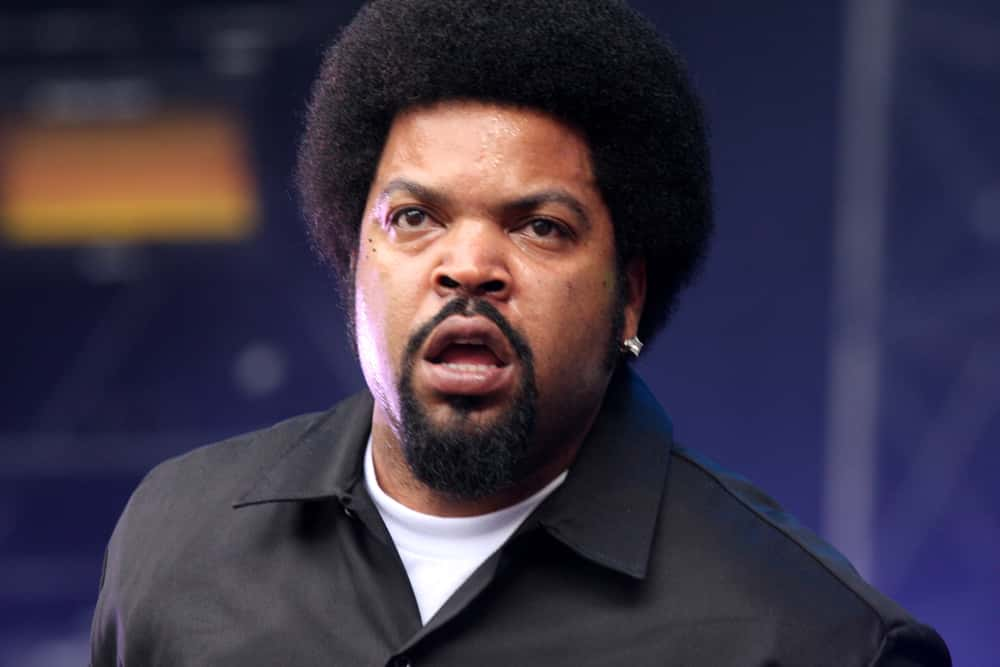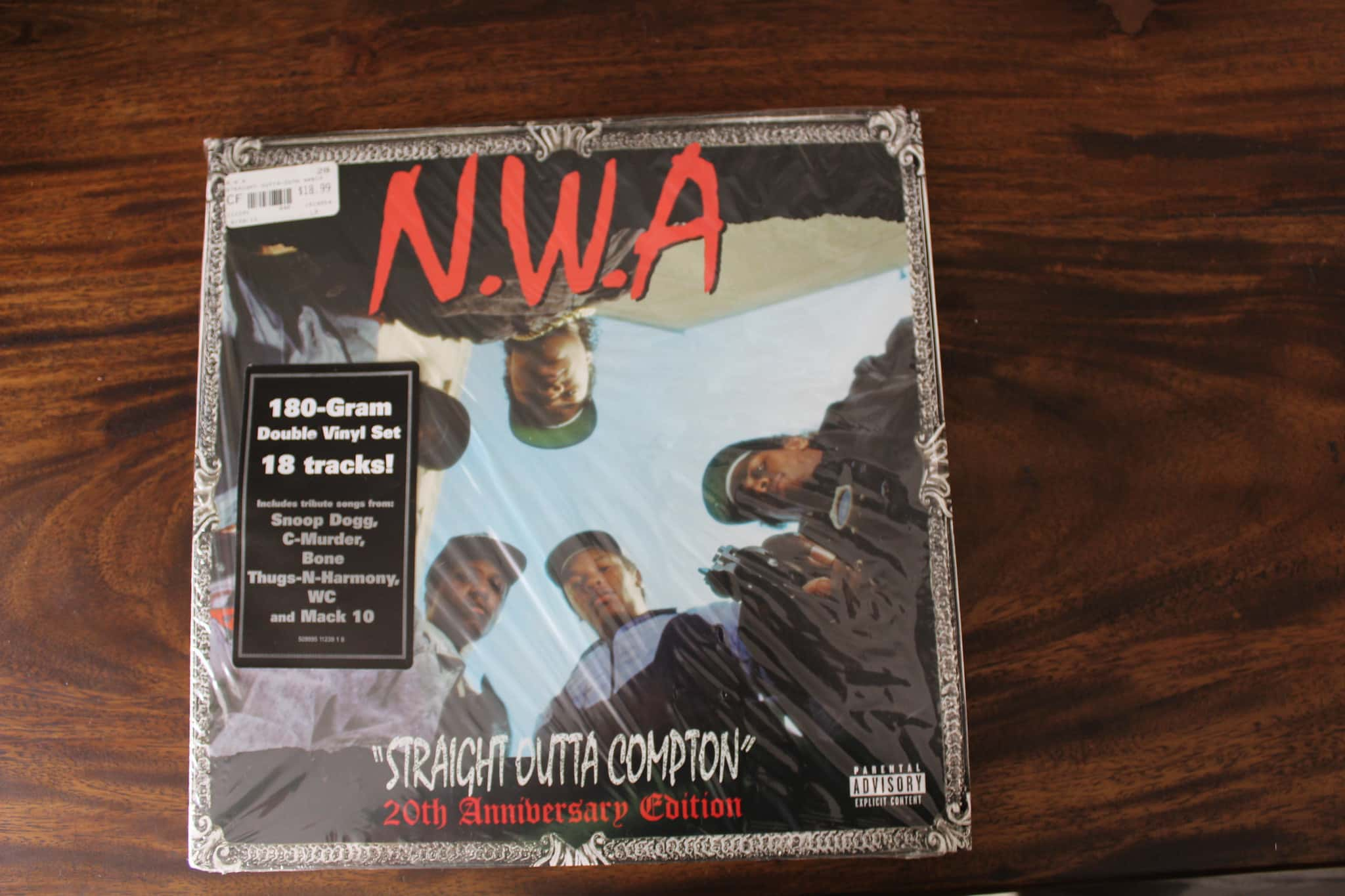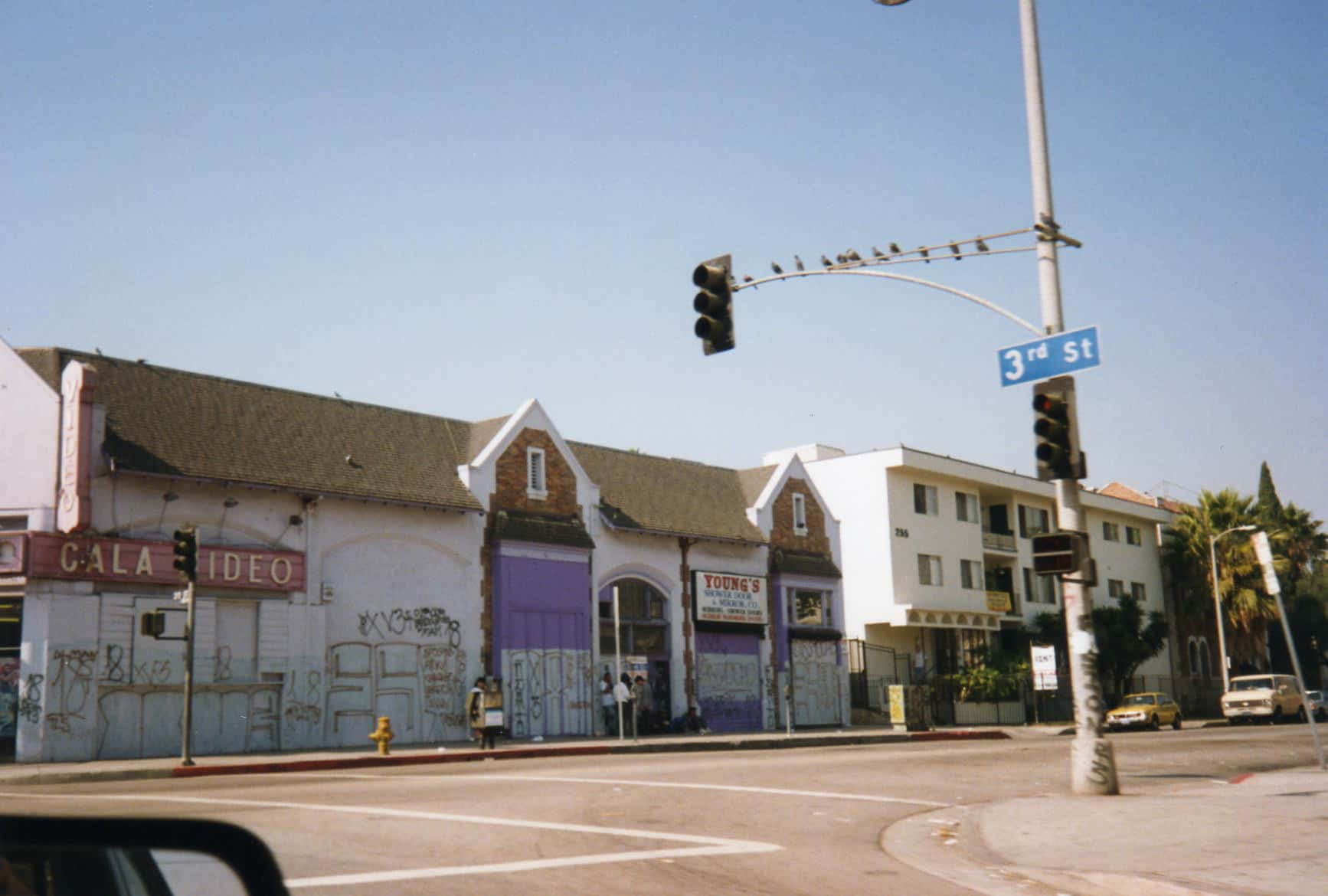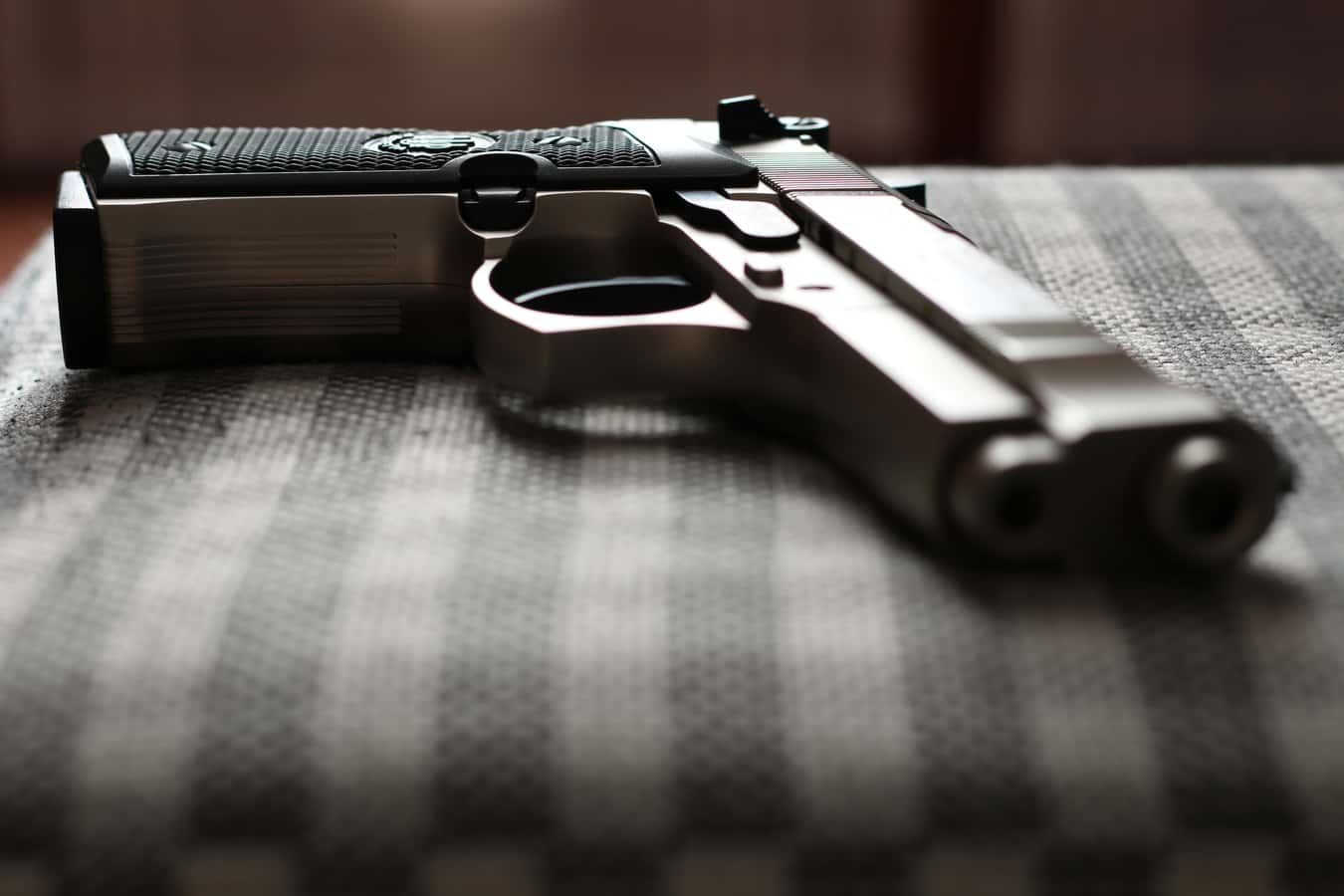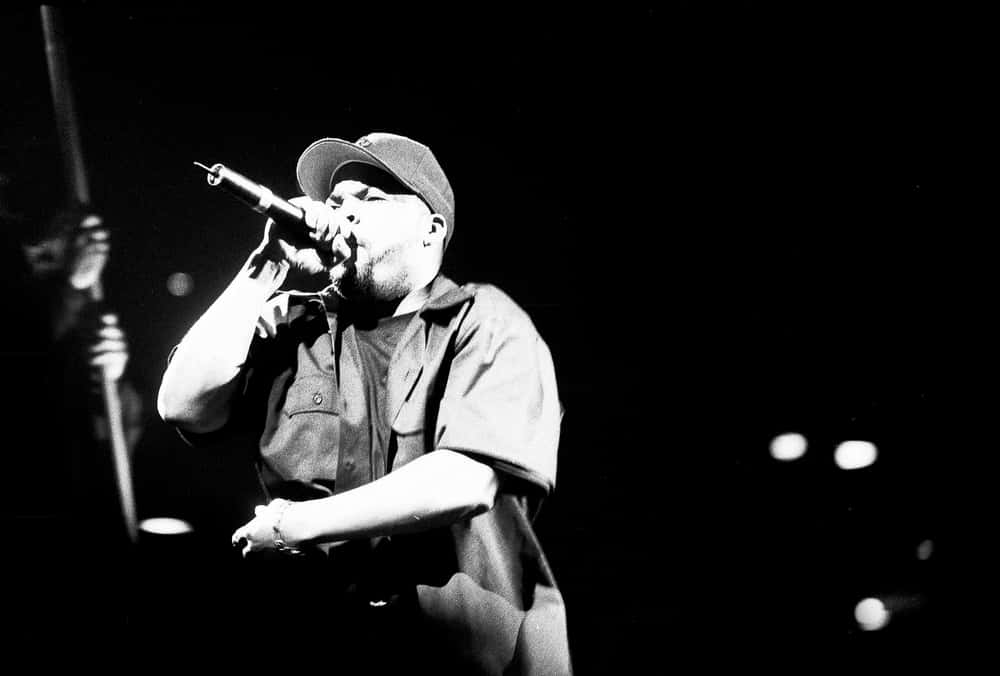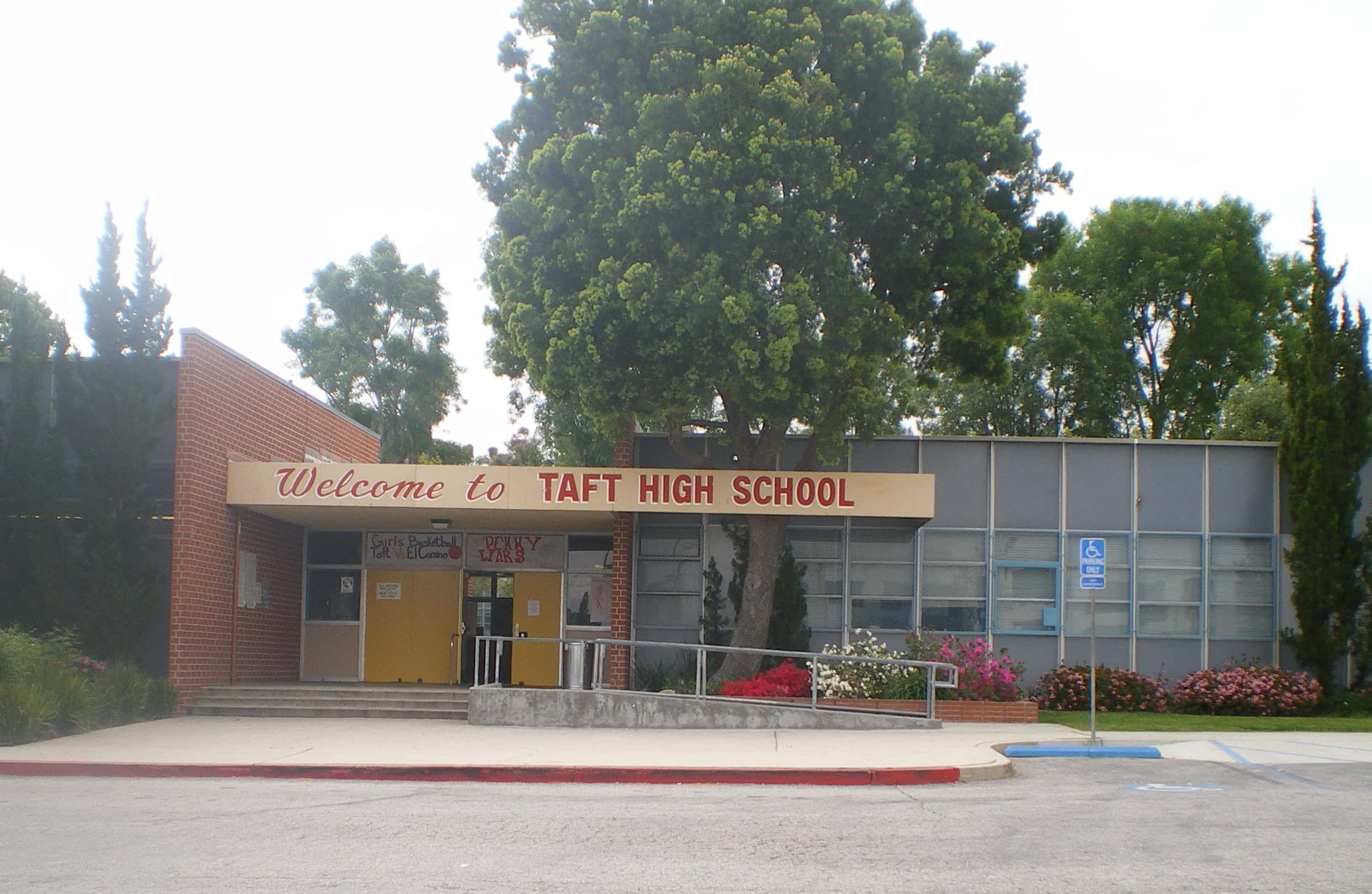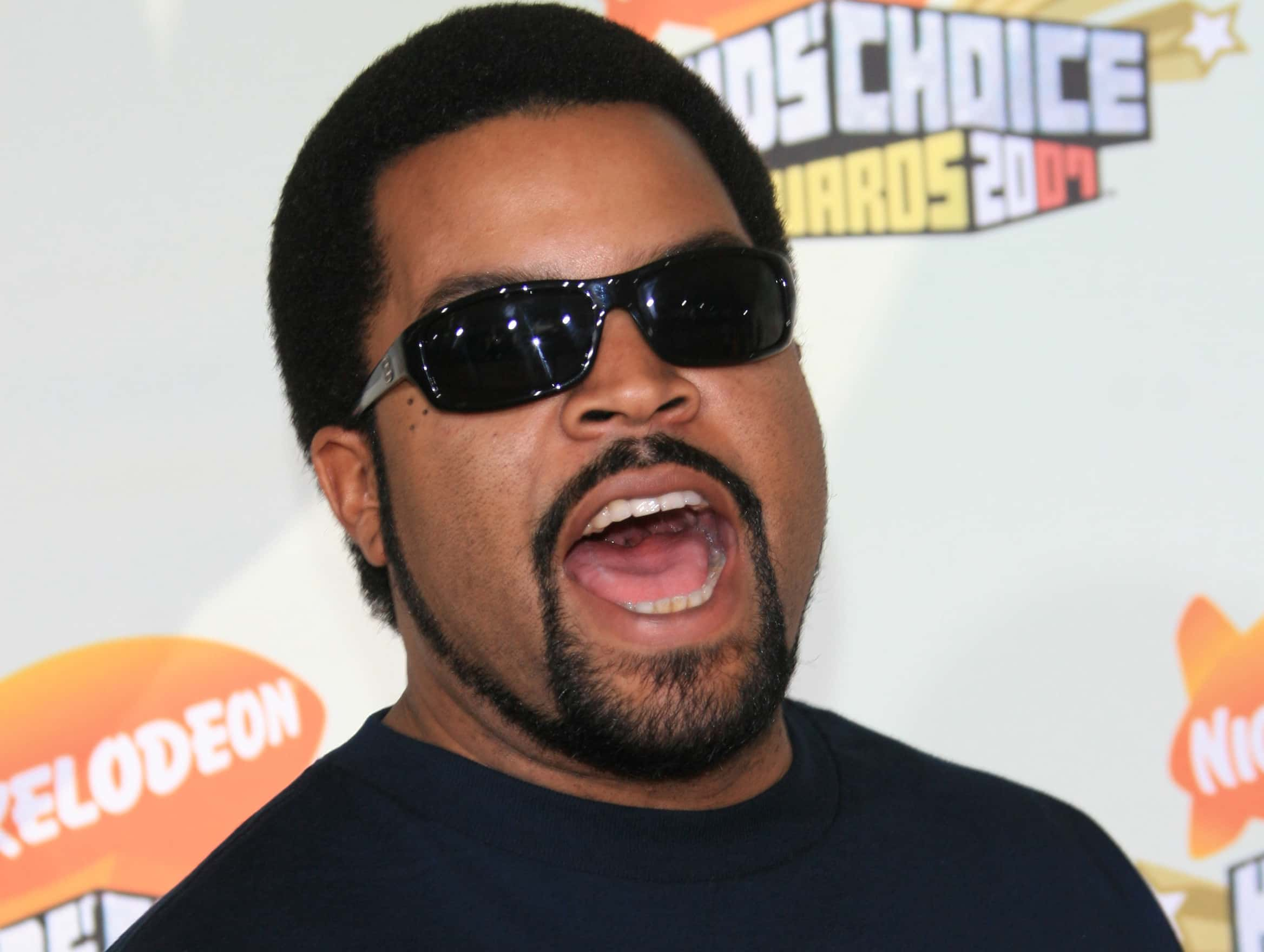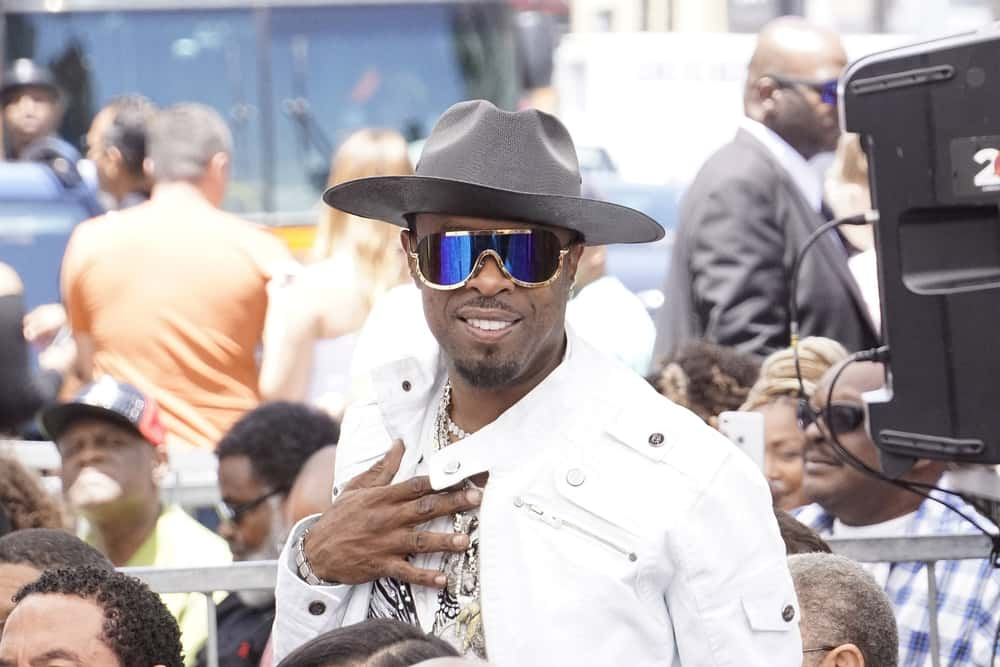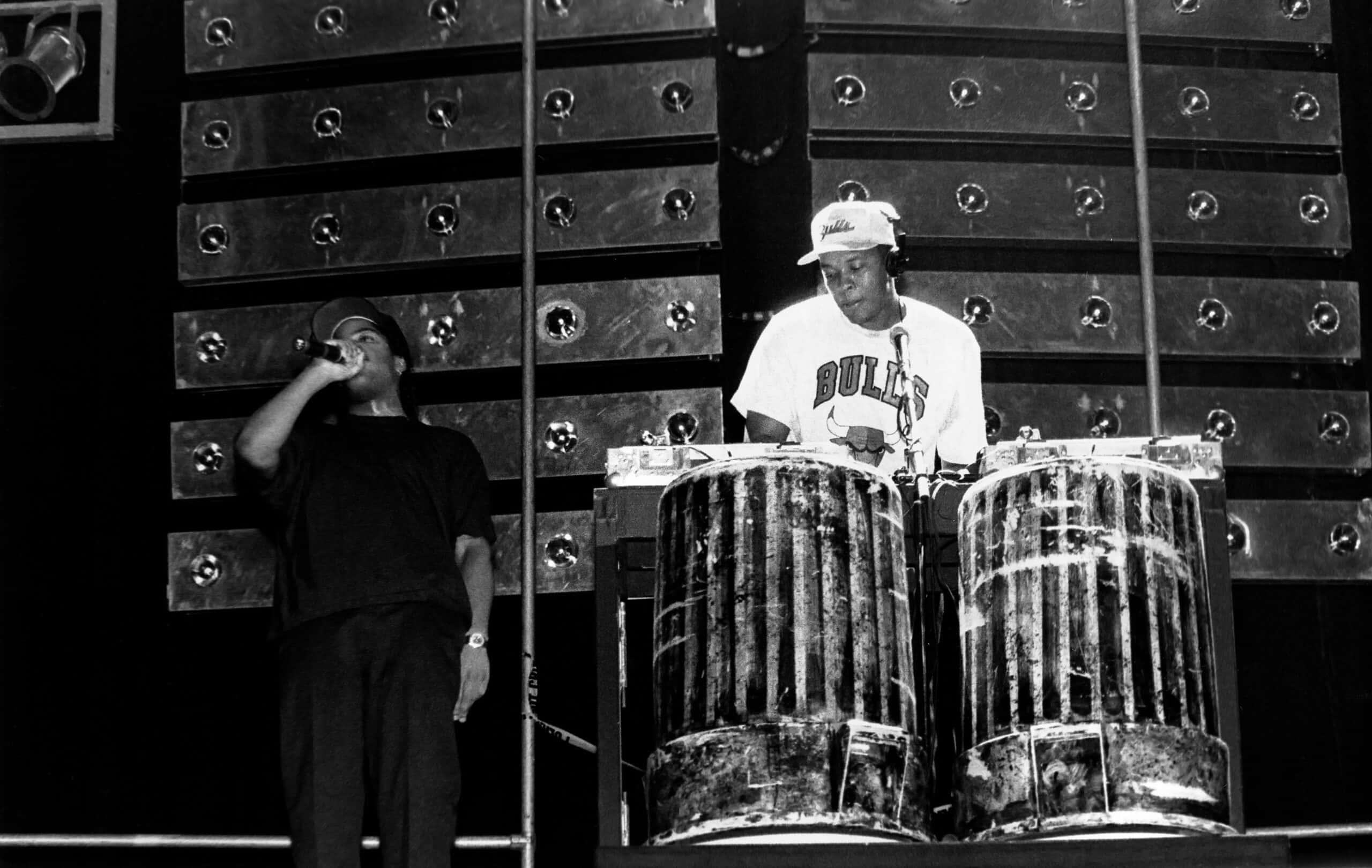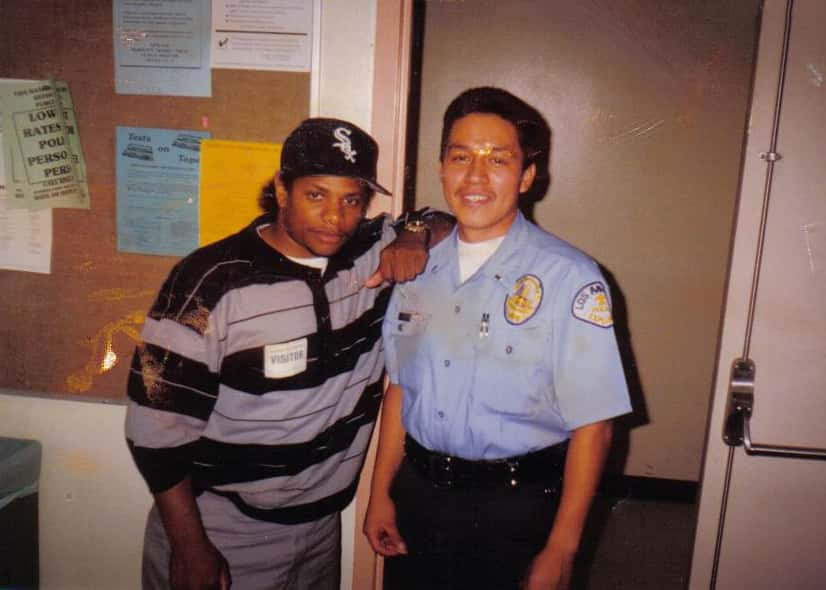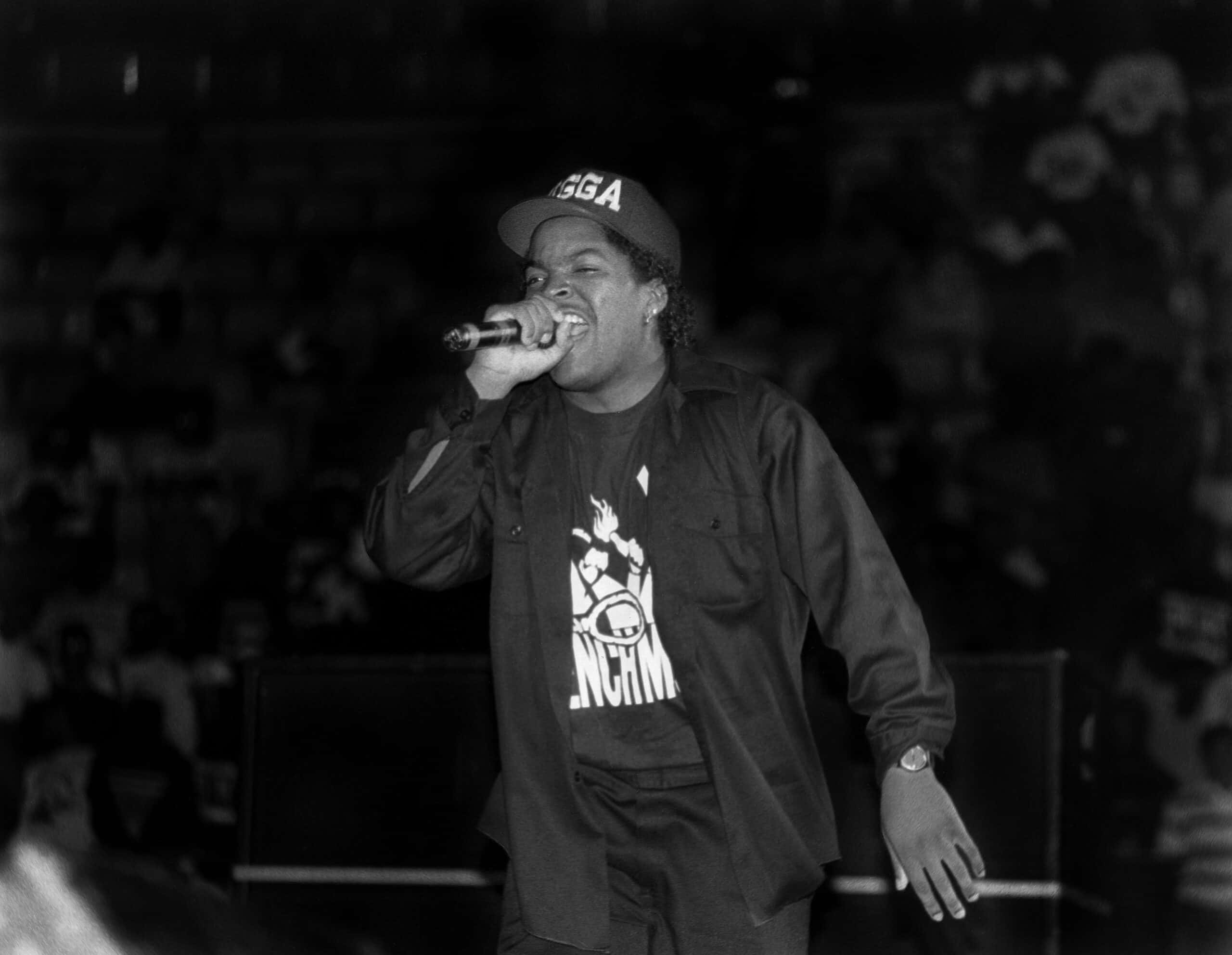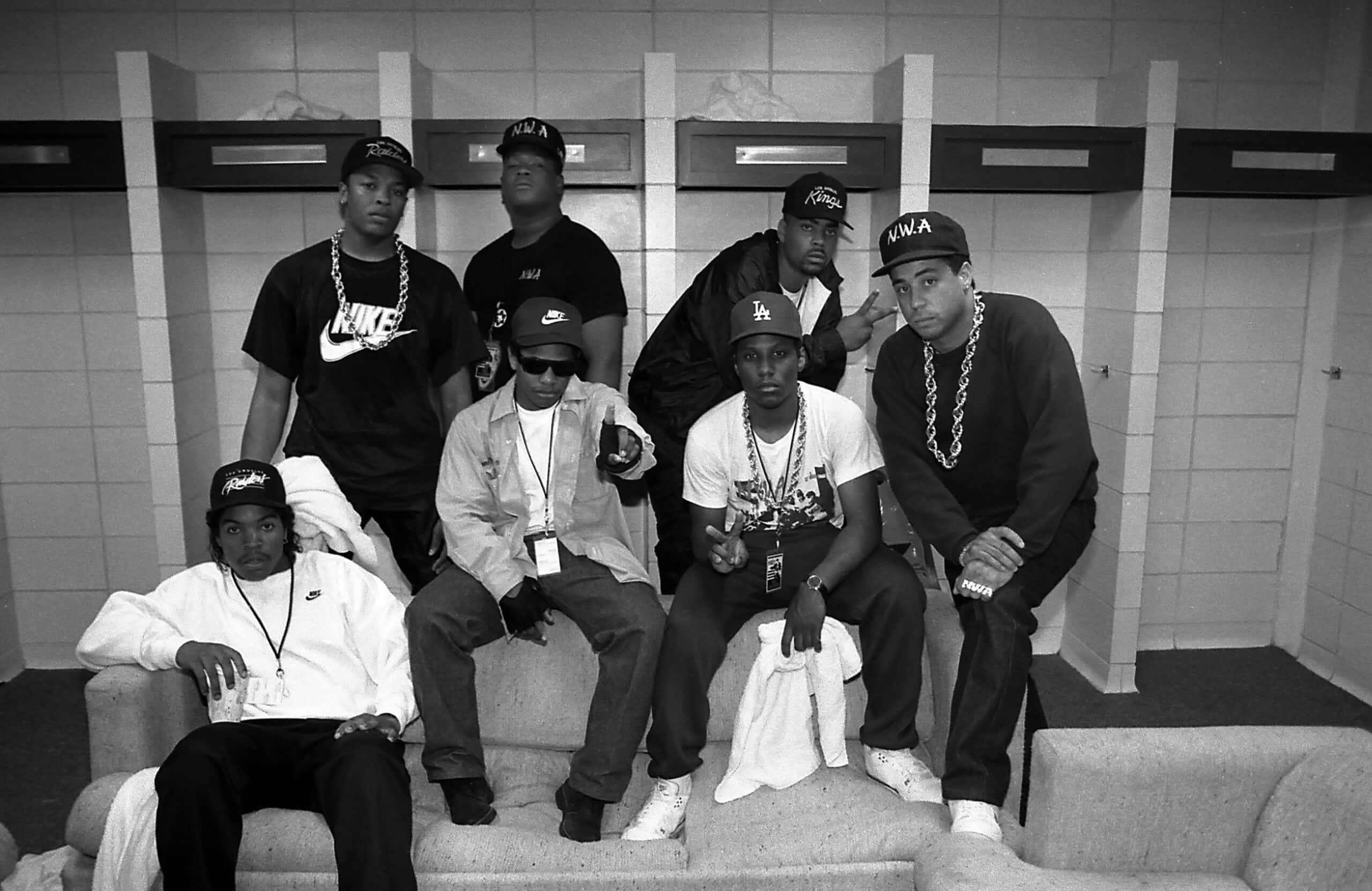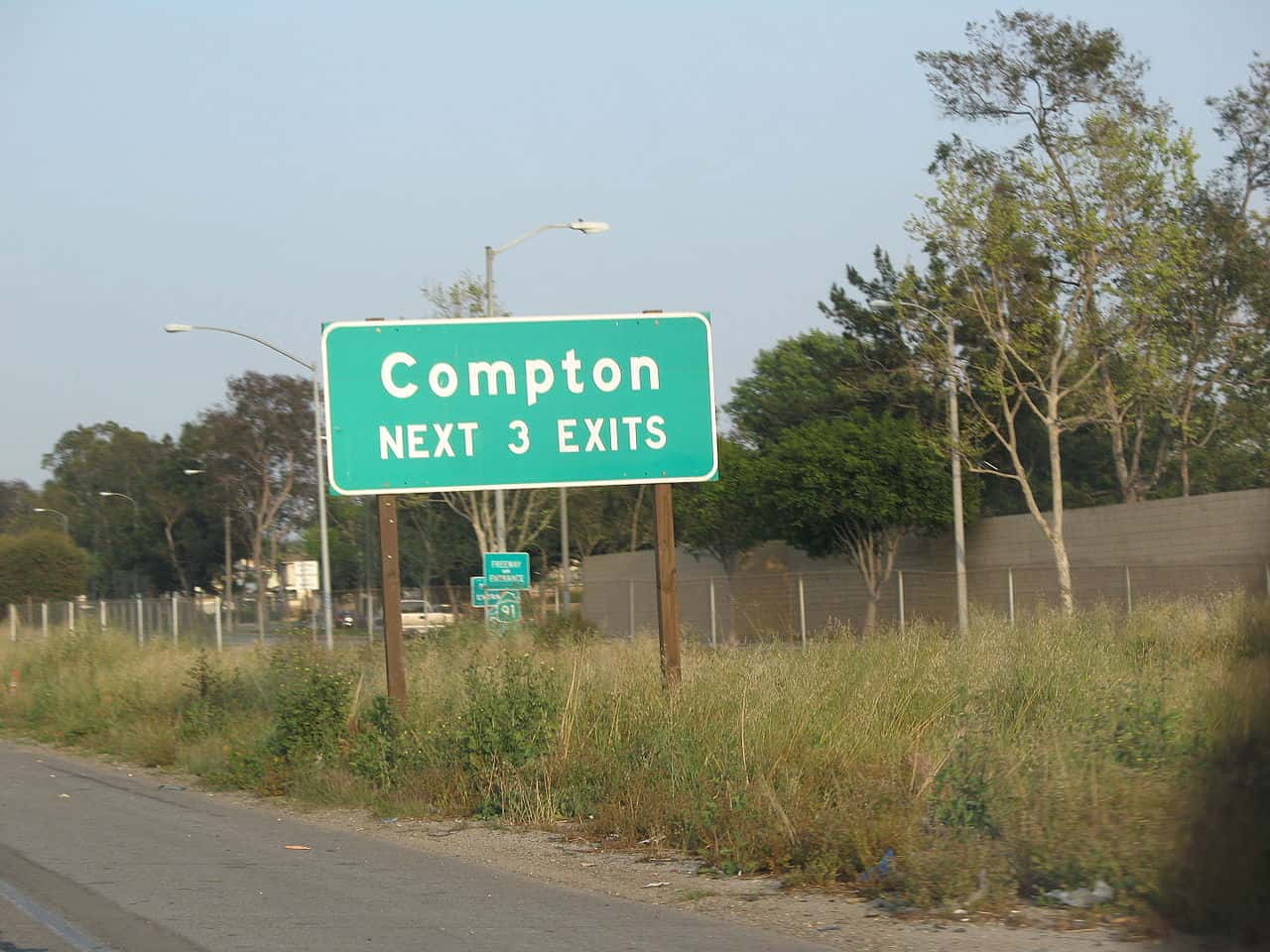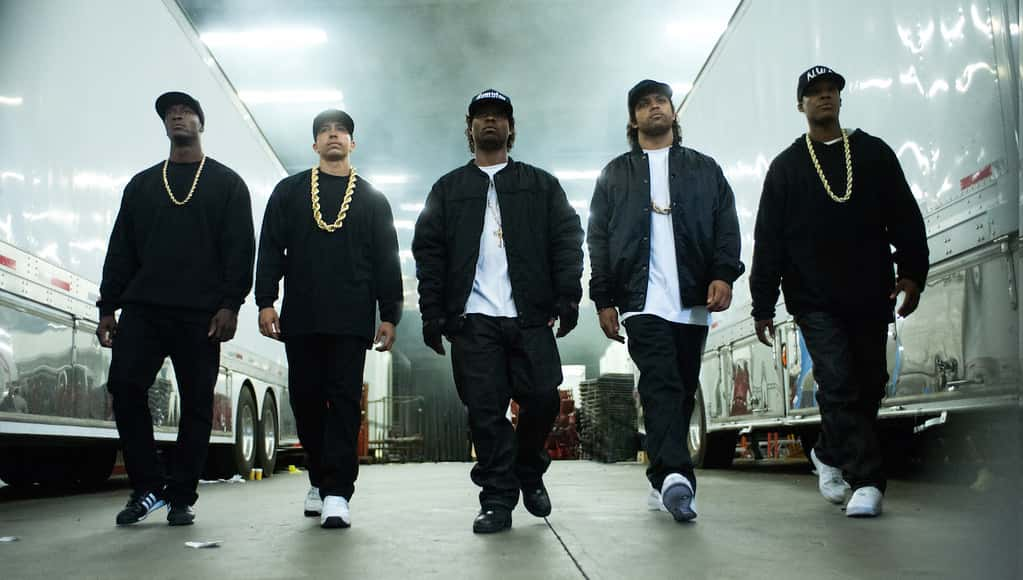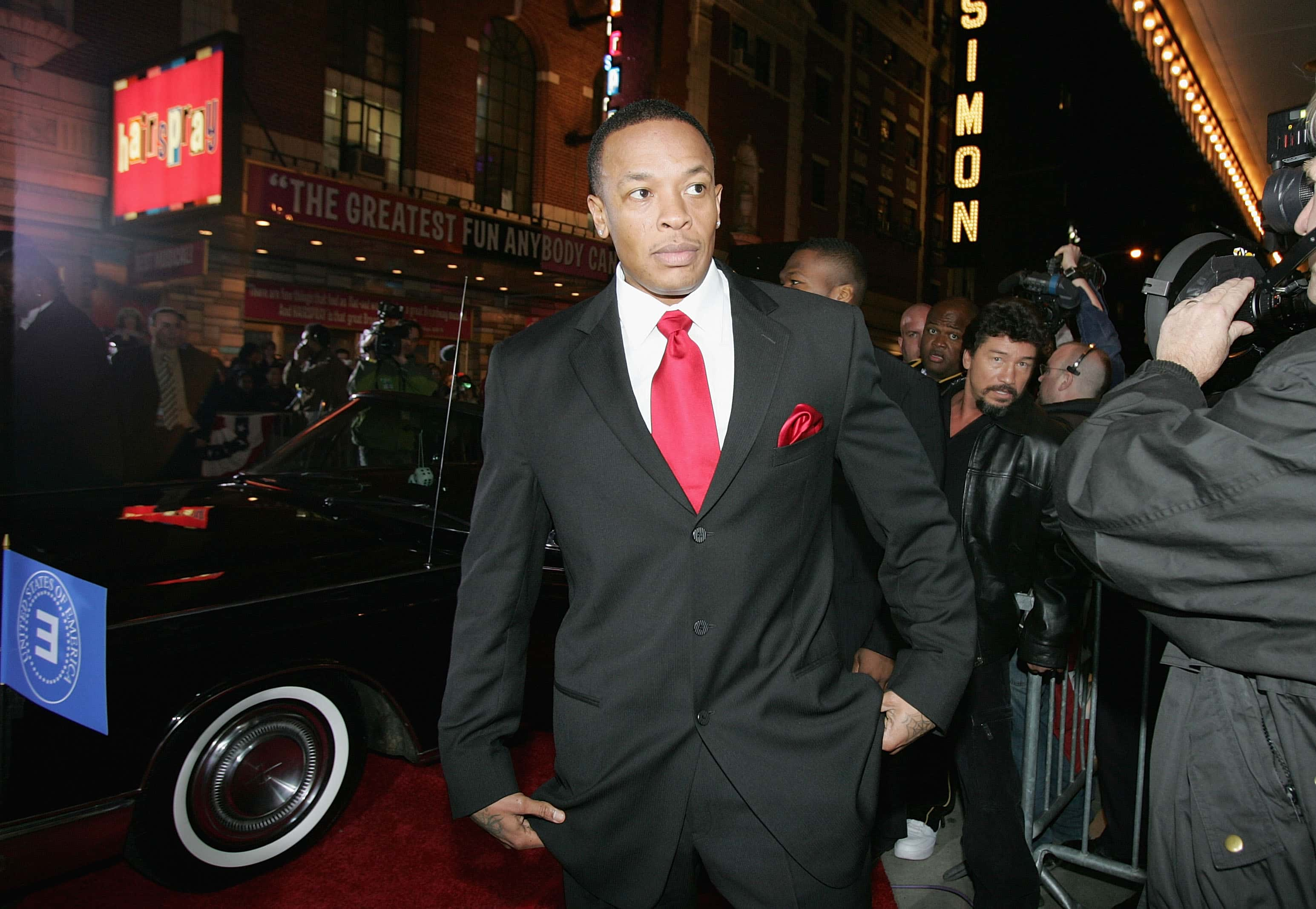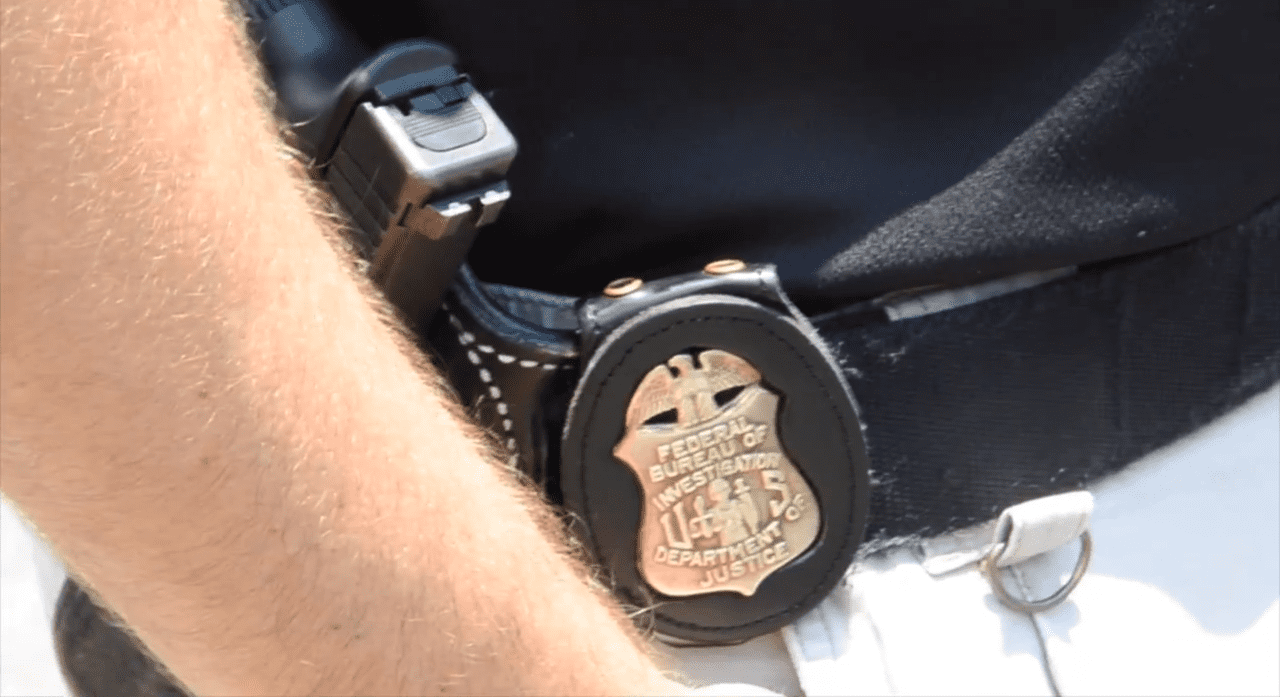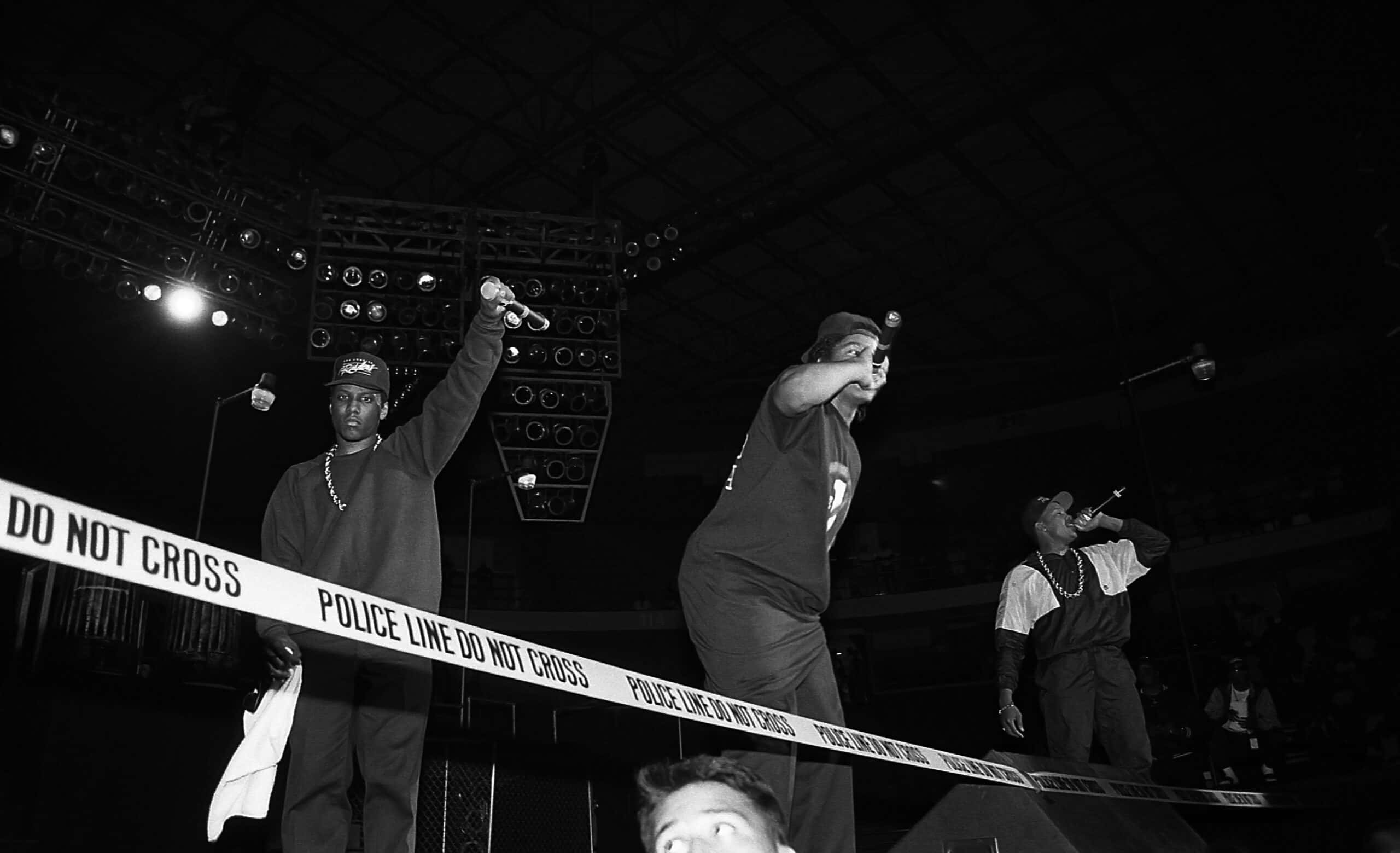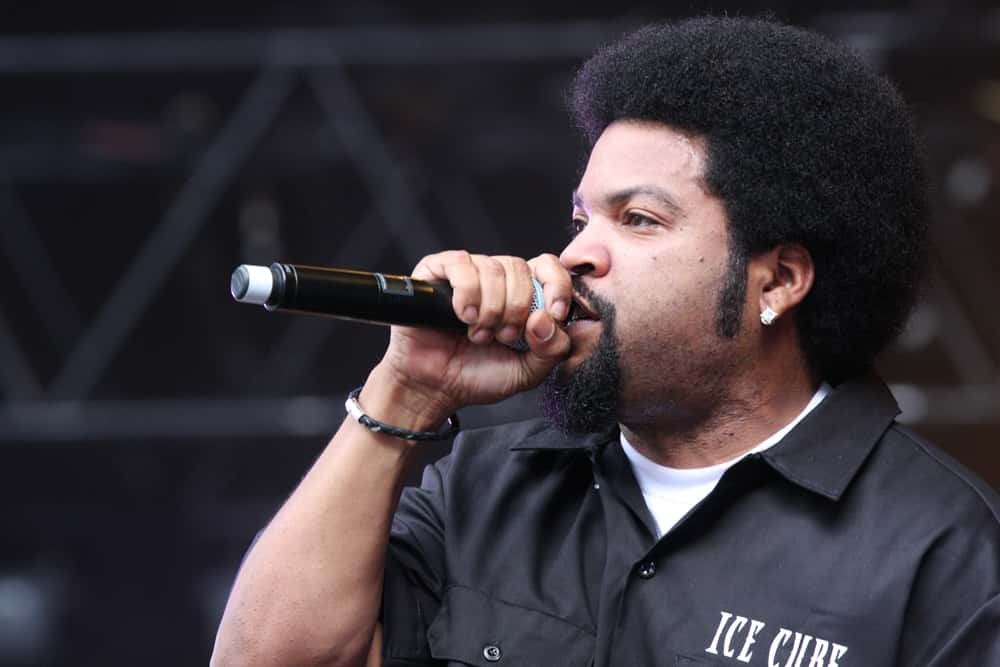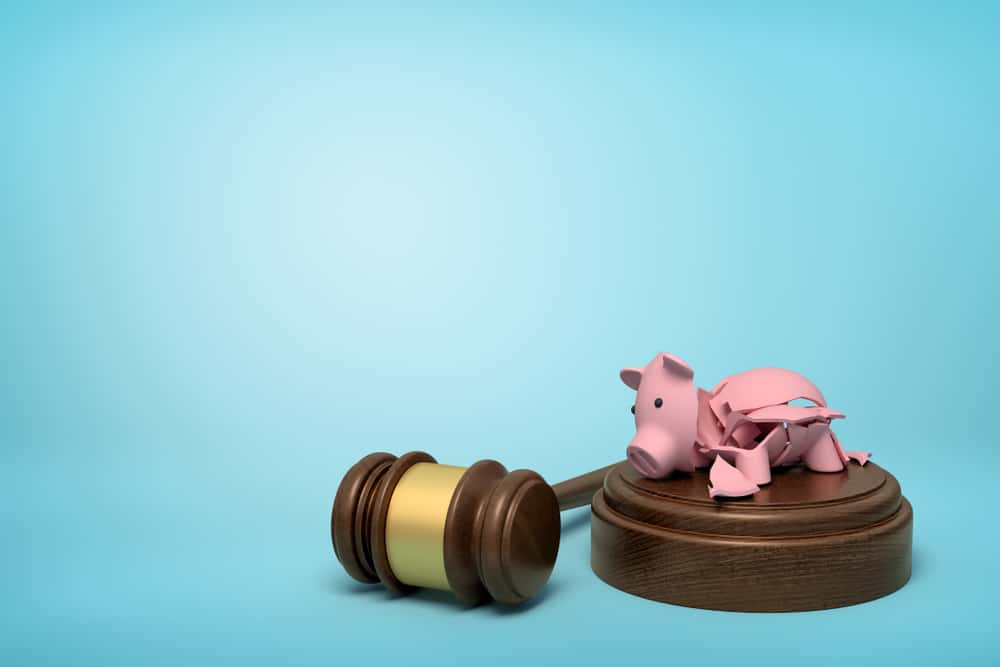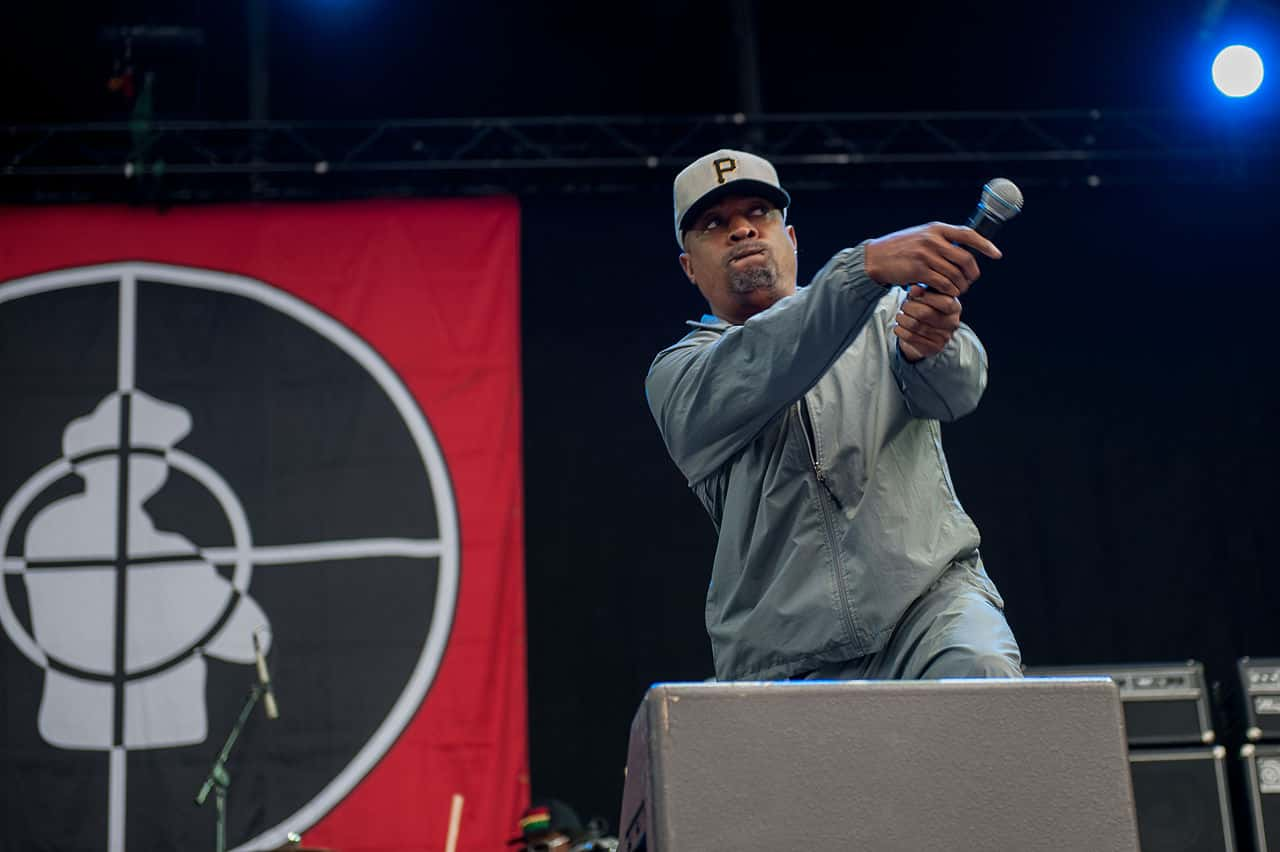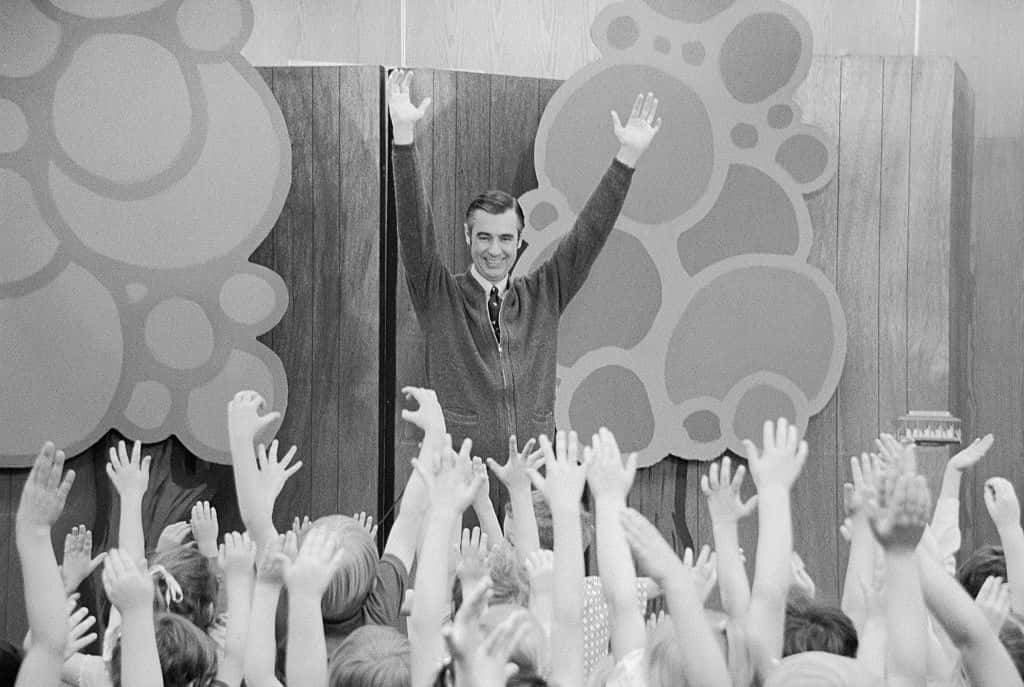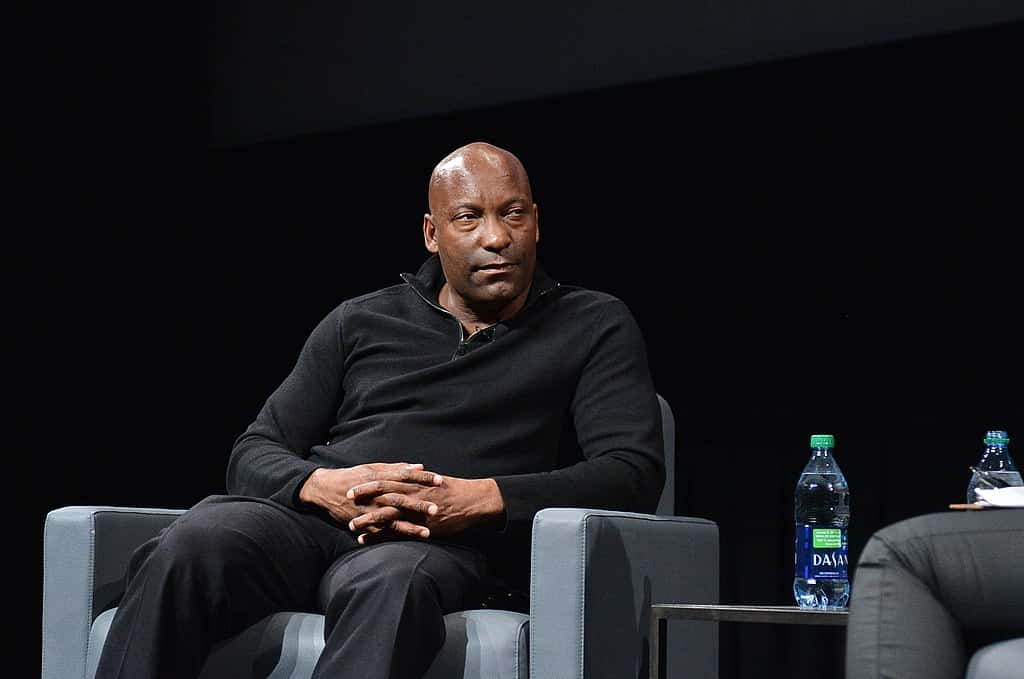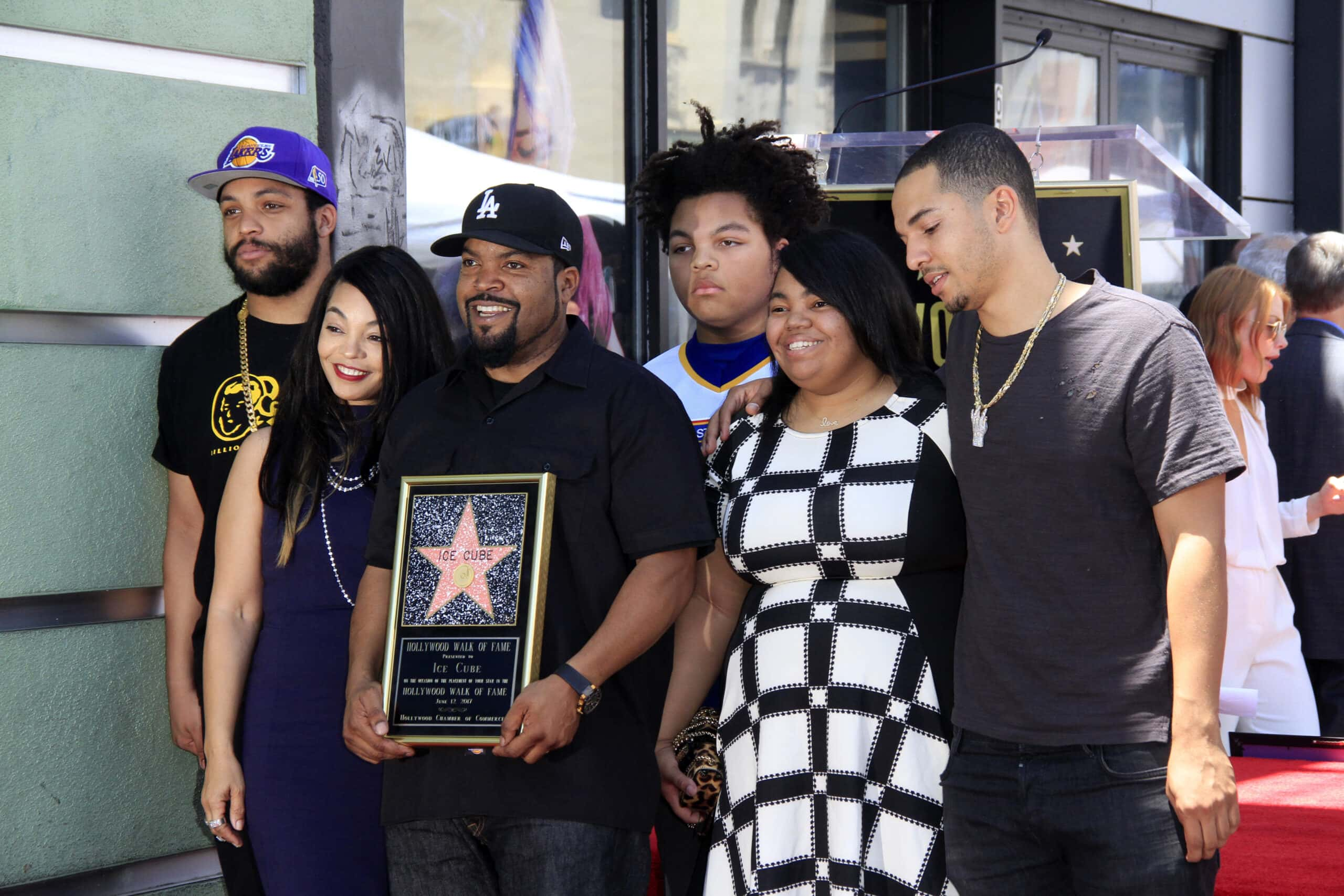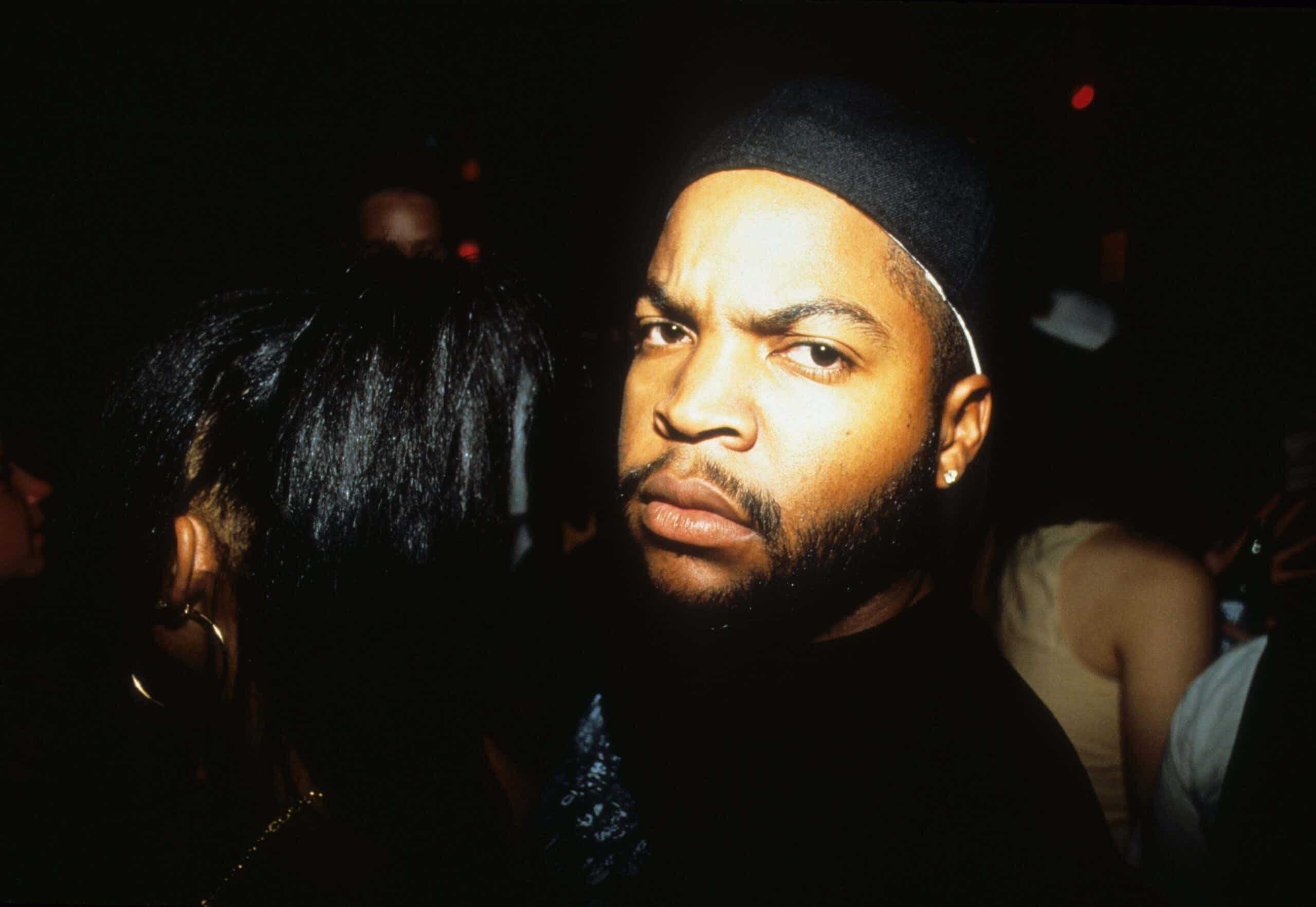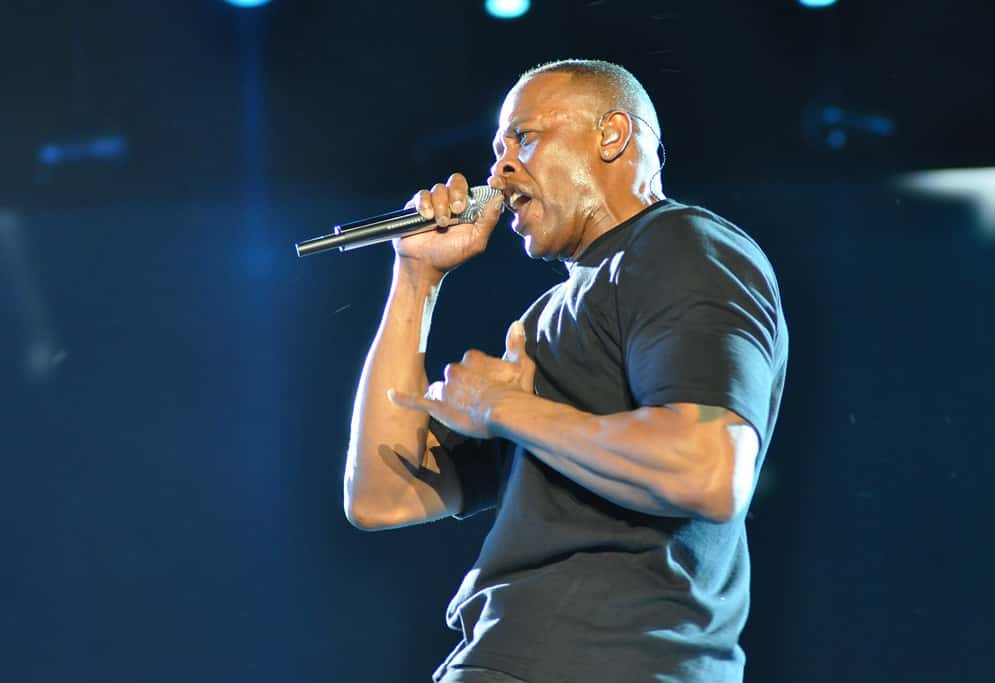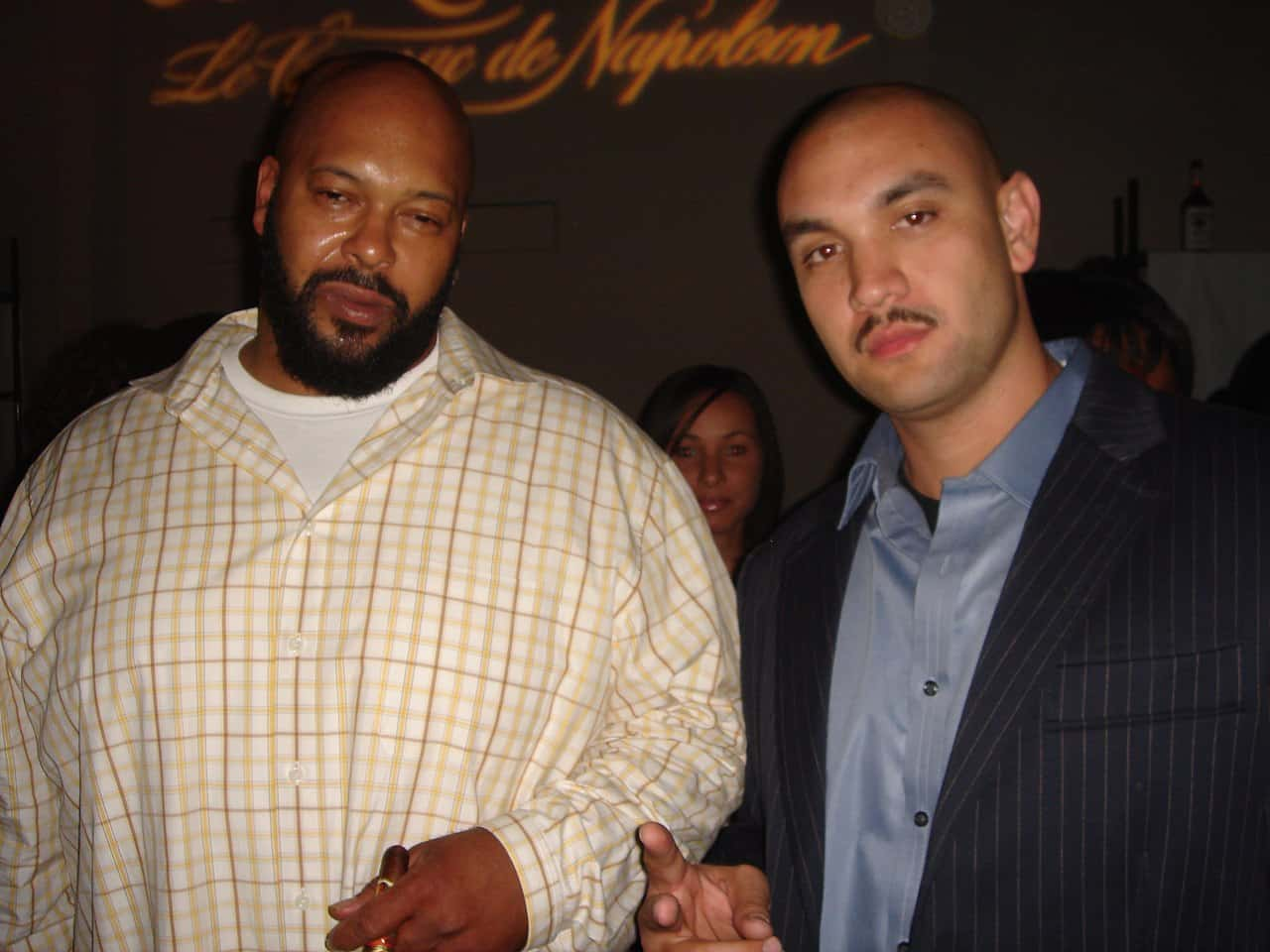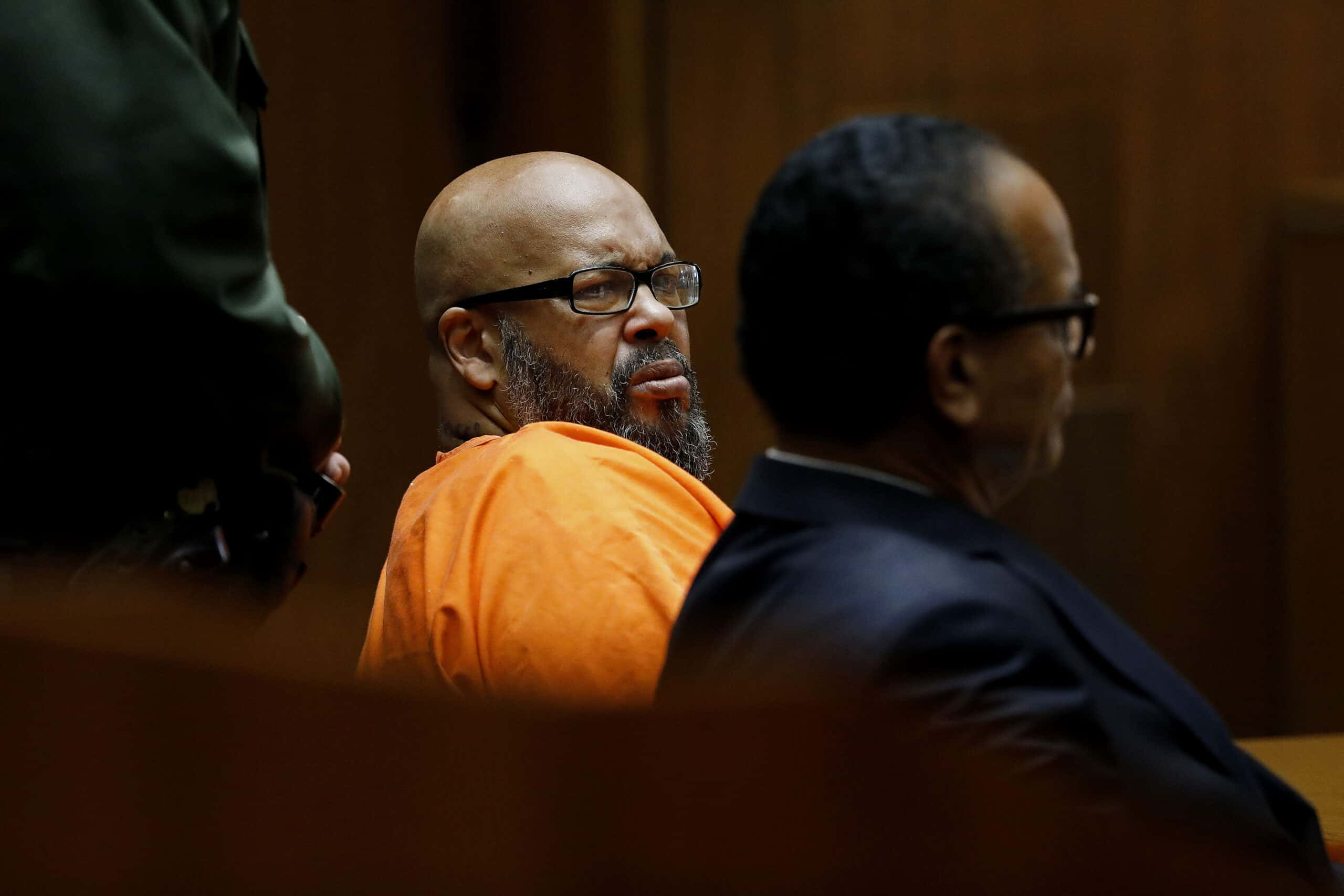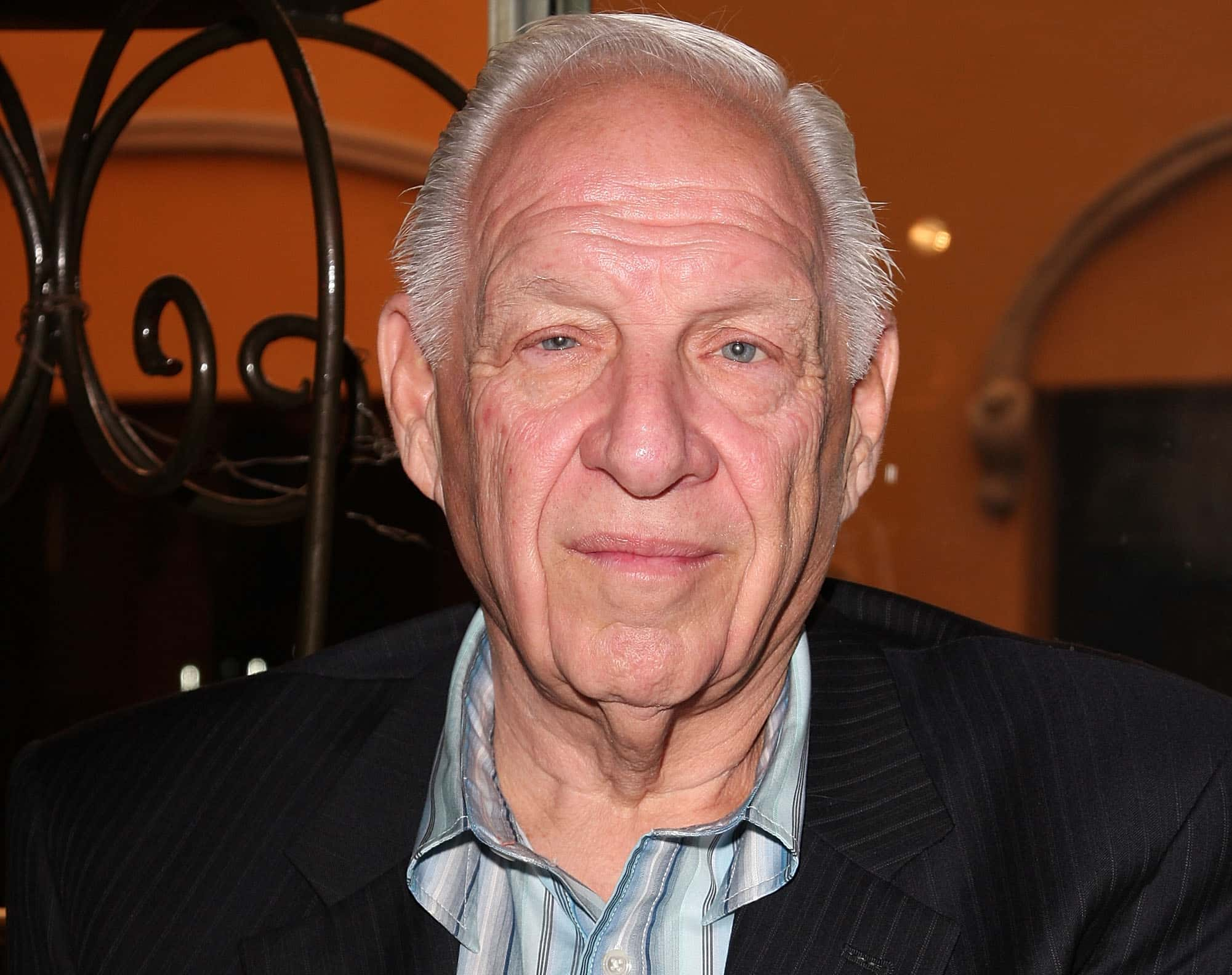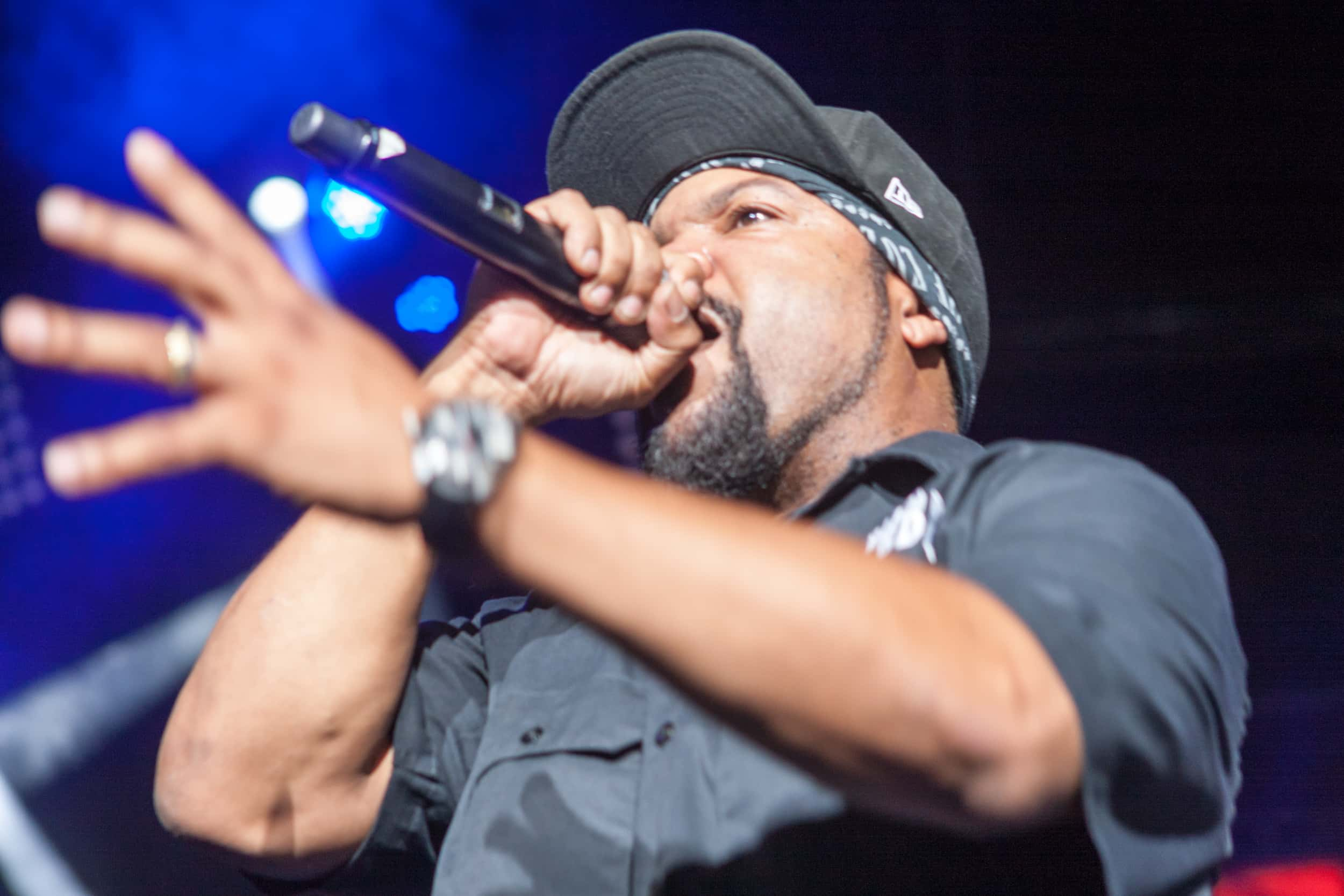Ice Cube burst onto the scene with hard-hitting gangsta rap before he moved on to serious politically-tinged lyrics and prestige films in the 1990s. While he might appear in lighter fare nowadays, he’s still a controversial figure both online and off—and behind the scenes, his personal life has been colored by both tragedy and scandal.
Ice Cube Facts
1. His Origin Story Is Unexpected
We know him as Ice Cube, but he was born O’Shea Jackson. So, where did his stage name come from? It’s not a sly reference to anything—it was actually his older brother who inadvertently inspired it. When the two were younger, Ice Cube's brother would say he was going to throw him in the freezer “and pull me out when I was an ice cube.”
Jackson decided to use Ice Cube as a name and it stuck—the rest is history.
2. He Took the Idea of a “Breakout” Album to the Next Level
Because rap music has changed so much since the 1980s, it's hard to understand just how ground-breaking N.W.A.’s music was—and how much controversy it caused. Their debut album, Straight Outta Compton, was too violent and full of rage to be played on the radio, but it managed to become the first gangsta rap album to reach platinum anyway, a nearly impossible feat in that era. It wouldn’t be the only time that Ice Cube was a magnet for controversy.
3. He Was From the Wrong Side of the Tracks
Ice Cube was born O’Shea Jackson to working-class parents in South Central Los Angeles. While he grew up in a rough environment, Ice Cube mostly stayed out of serious trouble thanks to his family. He credits his father and older brother for keeping him on the right track—but that doesn’t mean his childhood was all sunshine and daisies. Far from it.
4. He Lost His Half-Sister
When Ice Cube was barely a teenager, he suffered a gut-wrenching loss. He had a half-sister named Beverly Jean Brown who was ten years his senior. One night in 1981, the Jackson family received some horrible news: Brown was dead, and the details were utterly chilling.
5. It Changed His Life Forever
Brown’s husband shot her in their own home, just blocks away from where her family lived. Ice Cube was just 12 years old at the time, and he called the horrific incident a “wake-up call.” The loss startled him out of his childhood and introduced him to a world of brutality and heartbreak. The loss of his sister indelibly changed him, and bled into every aspect of his life.
6. He’s a Survivor
After losing his sister to a senseless act of violence, Ice Cube was instilled with a newfound vigilance and sense of survival. He confessed that his life became about “preventing” anything bad from happening to him—a pretty serious viewpoint and lifestyle for a 12-year-old kid. The incident would go on to influence both Ice Cube's music and his films.
7. He Sucked at Music
When Ice Cube was in ninth grade, a friend in typewriting class told him to write some lyrics and participate in a rap battle. Considering Cube's later success in the music industry, the battle didn’t exactly go as planned. Cube lost—but clearly, a switch had been turned on his brain. From that point on, music became an integral part of his life and identity.
8. He Was in a Bad Part of Town
Ice Cube began high school at George Washington Preparatory School in L.A. Despite the fancy name, it had a disturbing reputation. The two founding members of the notorious Crips street gang had met at Washington, and the school was still plagued by danger and brutality even years later. Cube’s mother decided to do something about it.
9. He Didn’t Fit in
His mother Doris had seen too many young people chewed up and spit out at Washington Prep, so she signed got her son to take the bus out to William Howard Taft High School instead—but the change brought about its own challenges. While his environment during the daytime was way more stable, it still had an ugly side. Cube and the other inner city kids were treated poorly and made to feel unwelcome—not by other students, but by the faculty and the community around the school…and his troubles didn’t end there.

Sign up to our newsletter.
History’s most fascinating stories and darkest secrets, delivered to your inbox daily. Making distraction rewarding since 2017.
10. He Couldn’t Escape Inner City Life
Even though Taft High provided a relatively safe space for Ice Cube during the day, he still had to return to South Central every afternoon, diving right back into the environment of gangs and substance use that his mother had tried to keep him out. This is where the sense of self-preservation that Cube learned after the tragic loss of his sister kicked in.
11. High School Made Him Tough
Ice Cube said that the most stressful part of his day was returning home to South Central after a day of school in the valley. He lived in fear of what could befall him after he stepped off of the bus—but these experiences weren't all bad. They also taught him resilience. When he was at school, he felt impervious to threats and insults from those around him, knowing that those situations were the least of his worries…but he also had another outlet at the time.
12. He Got Started Young
Ice Cube hadn’t forgotten the freshman year rap battle he entered at his previous high school. When he was 16, he started a group called Stereo Crew (later renamed to C.I.A.) with a friend who went by the name of Sir Jinx. Soon enough, they had a heavyweight ally in their corner: Dr. Dre, who was at that time performing with the DJ collection World Class Wrecking Cru.
13. His Big Break Was a Disappointment
Incredibly, the Stereo Crew were an immediate success and Epic Records signed them. For the uninitiated, Epic had, just years before, released Michael Jackson’s Thriller, the best-selling album of all time. Did we mention that Ice Cube was still just 16 years old when he landed this deal? Sadly, his triumph was short-lived. Stereo Crew's debut single failed so miserably that Epic dumped the Stereo Crew.
14. He Was Still Just a Kid Messing Around
After Epic dropped them, the Stereo Crew renamed themselves C.I.A. They continued to play at parties and clubs around L.A., and Ice Cube and Dr. Dre developed something of a reputation for messing around on the mic. Ice Cube once performed a song over the beat of Run-DMC’s “My Adidas”…about his own member. They made a terrible impression on nightclub owners, to say the least.
15. His Writing Chops Changed Everything
Regardless of any shenanigans, Ice Cube’s success with C.I.A. meant that he was in demand. Soon enough, he was face-to-face with a different, life-changing opportunity. A rapper from Compton named Eazy-E wanted Ice Cube to write songs for him. It was a different time in rap music, and it wasn’t uncommon for rappers to perform songs by other people.
Ice Cube obliged, but it wasn’t simply a straight shot to the top from there.
16. His Lyrics Were Incredibly Dark
Eazy-E had started his own label, Ruthless Records, and pushed his local contacts to introduce him to Dr. Dre. From there, he met Ice Cube, who he tasked with writing the now classic song “Boyz-n-the-Hood”—but few knew the dark story behind the lyrics. The narrative song features two intertwined stories, one of which culminates in a shootout at a courthouse.
There are many parallels between the lyrics of that part of the song and the story of the 1970 Marin County Courthouse Shootout.
17. He Had a Way With Words
The song “Boyz-n-the-Hood” launched the career of Eazy-E and paved the way for the original lineup of N.W.A to release their debut single, "Panic Zone." They followed it up with an album that gathered the songs they’d released so far, along with songs by associated groups. Within this lineup, Ice Cube was the “lyricizer” to Dre’s “musicalizer” and E’s “conceptualizer.”
Things were simmering for Ice Cube, and soon, they’d blow up—for better, or for worse.
18. He Had Two Potential Paths
Ice Cube was writing songs left and right, and N.W.A. had signed on for an August 1987 tour with Salt-N-Pepa—but behind the scenes, Ice Cube was hiding a secret. While he’d been studying at Taft High School, he’d gotten into architecture. The Phoenix Institute of Technology accepted his application to study there. It was an impossible choice to make—and it nearly changed the course of rap music forever.
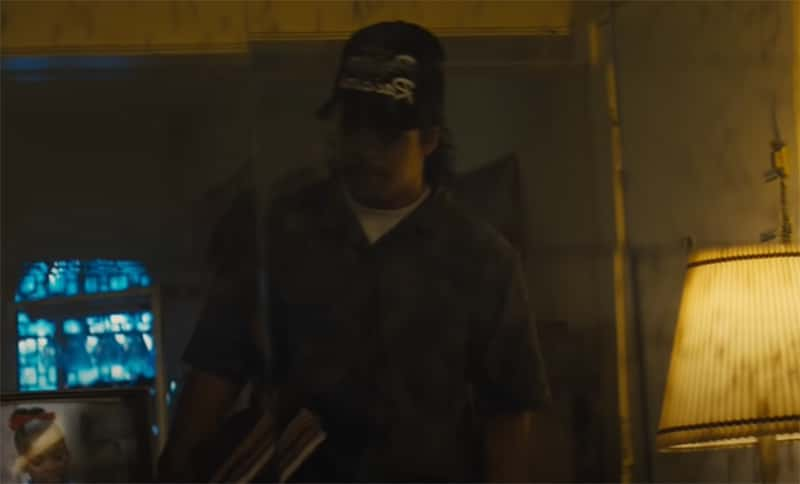 Straight Outta Compton (2015), Universal Pictures
Straight Outta Compton (2015), Universal Pictures
19. He Had a Backup
You won’t see it in the biopic Straight Outta Compton, but soon after N.W.A.’s August 1987 tour ended, Ice Cube left Los Angeles for Arizona, pursuing his passion for architecture. He was there for one year, getting a diploma in architectural drafting and design. He returned to L.A., ready to change the world with N.W.A.—but now, he had a potential career in architecture as a backup plan.
 Straight Outta Compton (2015), Universal Pictures
Straight Outta Compton (2015), Universal Pictures
20. He Did the Heavy Lifting
Ice Cube jumped back into L.A. life with full force, making an album with N.W.A. in mere weeks. In August 1988, N.W.A. released the album that would change music forever: Straight Outta Compton. While most rappers today write their own lyrics, the 80s were a very different time, and it was actually Ice Cube and MC Ren who wrote most of the lyrics on the album, including all of Eazy-E and Dr. Dre’s verses.
21. They Were Too Much for the Mainstream
While the group had instant access to local DJs in L.A., Ice Cube’s violent lyrics and profanity meant that the album couldn’t be played on radio basically anywhere else. Even so, word of mouth spread about the album, and people wanted to see what the hype was about. Since they couldn’t hear it on the radio, they bought the album, which accounts for at least part of its success.
However, radio plays were the least of N.W.A.’s worries. The numerous controversies that ensued would soon earn them the name, “the world’s most dangerous group.”
 Straight Outta Compton (2015), Universal Pictures
Straight Outta Compton (2015), Universal Pictures
22. They Didn’t Think They Were Gangsta Rap
Ice Cube opens the song “Straight Outta Compton”…but he was from South Central. As he explained, all the other members were from Compton, and it was just easier to fall in line with them. After all, N.W.A. wanted to sing about where they lived and the things they saw on the streets everyday, calling their genre “reality rap.” Instead, many took to calling in “gangsta rap,” a moniker which stuck—and which caused them a lot of problems.
23. One Song Caused a Lot of Trouble
The song “Straight Outta Compton” was the first single from the album, but it was the provocative second single “[Expletive] the Police” (AKA “FTP”) that made a huge impression. While Dr. Dre and Eazy-E claimed that the inspiration for the song came from a chilling incident they had with law enforcement, Ice Cube said that it was more of a general social commentary and that it was their form of “nonviolent protest.”
24. He Knew They Had Something Earth-Shattering on Their Hands
When Ice Cube presented the lyrics for “FTP” to the group, Dr. Dre was reluctant to record it—he was serving a sentence for traffic-related arrests on the weekends. He worried that if the guards knew about the song, he would be in grave danger. However, the force and power of the song was undeniable, and they couldn’t pass up the opportunity, so they waited until Dre finished his sentence.
By waiting to release it, they avoided a dark outcome—but you can’t evade scandal forever.
25. The FBI Targeted Them
“FTP” stirred major controversy—and spelled huge trouble for Ice Cube. The FBI actually sent a letter to N.W.A.’s record company denouncing the group, saying that they “encouraged attacks against and disrespect for the law enforcement officer.” Immediately, Ruthless Records prepared for an FBI raid—but then something even stranger happened.
26. The “FBI” Letter Caused All Kinds of Trouble
Ice Cube and the rest of N.W.A. found out that the FBI letter wasn’t actually an official missive. A single disgruntled employee named Milt Ahlerich had written it and sent it without any oversight from the Bureau. The FBI demoted Ahlerich for the fiasco, but the damage was done. Usually, law enforcement officers provided security for bands of N.W.A.’s size when they were on the road—they either worked in an official capacity, or they were off-duty officers hired to work for the night.
However, law enforcement officers refused to work for N.W.A. due to the content of “FTP”—and it culminated in a terrifying incident.
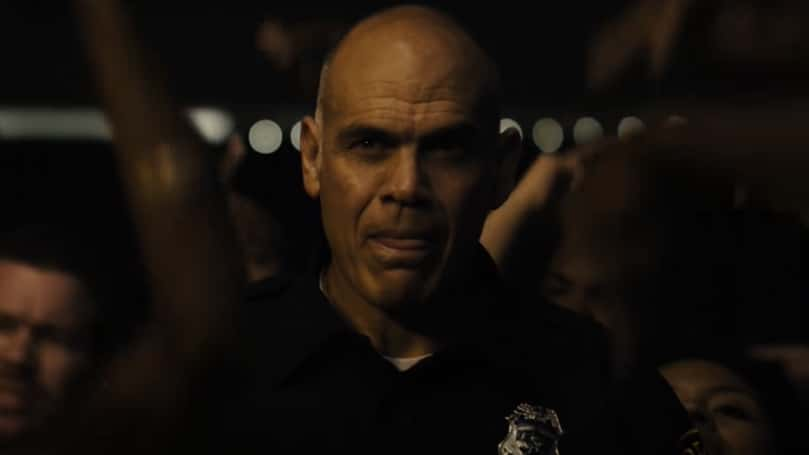 Straight Outta Compton (2015), Universal Pictures
Straight Outta Compton (2015), Universal Pictures
27. They Were Under a Huge Threat
One of the last dates on Ice Cube and N.W.A.’s tour was in Detroit. On many dates through the tour, including Detroit, they had to agree not to play “FTP”—a clause that they actually followed, until one fateful night. Of course, the crowd in Detroit expected that they'd play their big hit. As Cube and N.W.A. looked out over the audience, they realized what they had to.
 Straight Outta Compton (2015), Universal Pictures
Straight Outta Compton (2015), Universal Pictures
28. They Played With Fire
Their contracts prohibited them from playing it, but Ice Cube and N.W.A. performed “FTP” that night in Detroit. The audience was elated—and the plainclothes officers working security were utterly furious. N.W.A. immediately stormed the stage as the venue pulled the plug on the group. They tried to escape through the back of the venue, but law enforcement ultimately caught and detained them.
Law enforcement held them, but were eventually forced to release them. However, threats from law enforcement weren’t their only problem.
 Straight Outta Compton (2015), Universal Pictures
Straight Outta Compton (2015), Universal Pictures
29. They Were Victims of Censorship
In the spring of 1989, MTV banned the video for “Straight Outta Compton.” For many, it would be a badge of honor, but the group was utterly devastated. The video shows a series of staged confrontations between the group and law enforcement officers, and what MTV saw as inflammatory, Cube and the group saw as a reflection of the type of situation they faced everyday.
If things looked dire for the group on the outside, it was nothing compared to what was going on inside.
30. He Wasn’t Getting His Dues
N.W.A. had just completed a tour of huge venues for their platinum-selling album Straight Outta Compton. In stark contrast to that was Ice Cube’s return to L.A. After the riotous end in Detroit, he went back to doing chores at home for his mom and sleeping in his childhood bedroom. Heller had paid him approximately $32,000 for his work on Straight Outta Compton and Eazy-E’s solo album. The numbers just didn’t add up—and when he decided to stand up for himself, it came back to bite him.
31. His Contract Was a Scam
On top of the lack of proper financial compensation, Ice Cube uncovered a cold betrayal in his contract with Ruthless Records: it didn’t even officially name him as a member of the group. After years of collaboration, Cube found himself up against Jerry Heller, who had helped Eazy-E start Ruthless. He knew what he had to do, and he knew that it wouldn’t be pretty.
 Straight Outta Compton (2015), Universal Pictures
Straight Outta Compton (2015), Universal Pictures
32. His Troubles Were Piling Up
As if that wasn’t enough, a drive-by shooting targeted Ice Cube’s home around the same time—but it had nothing to do with his ongoing battle with Ruthless. It was actually a case of a mistaken address. He was stuck at his parents’ house after making just pennies from a platinum album, and the terrifying incident made everything seem worse. He approached Heller and brought up the fact that the tour had made six figures, not counting merchandise. Heller’s reaction was ice cold.
 Straight Outta Compton (2015), Universal Pictures
Straight Outta Compton (2015), Universal Pictures
33. He Couldn’t Take It Anymore
He cut Ice Cube a check for $23,000 and told him not to bring it up again. This would be a fatal mistake. Ruthless Records owed him at least six figures more in royalties. After Heller dismissed him, Ice Cube knew that he was unlikely to see them. Backed into a corner, he felt forced to make a heartbreaking decision. He sued Heller and left N.W.A. for good—but they didn’t exactly take it well.
34. He Involved Himself With an Infamous Group
Leaving N.W.A. wasn’t just a career change for Ice Cube—for better and often for worse, it wound up changing his whole life. Public Enemy’s Chuck D hooked him up with his production crew and they began to make Ice Cube’s first solo album. On top of that, Chuck D introduced Ice Cube to the contentious religious movement Nation of Islam, led by the notorious Minister Louis Farrakhan.
While it opened up a whole new world to him, it also ushered in a new era of negative attention and controversy.
35. N.W.A. Was Furious With Him
Ice Cube had moved on with his life, but N.W.A. clearly hadn’t. Their first EP after his departure was filled with multiple disses aimed directly at Cube. They called him a coward and accused him of ripping off their sound. It was a real “shots fired” moment—but there had been one last, heartbreaking attempt to prevent the growing feud.
 Straight Outta Compton (2015), Universal Pictures
Straight Outta Compton (2015), Universal Pictures
36. He Was Half of a Bitter Feud
Ice Cube always had complete confidence in Dr. Dre’s production, and had asked him to help him make his first solo album—but, of course, N.W.A. manager Jerry Heller stepped in and stopped it. Ice Cube went on to make a hit album, which infuriated the remaining members of N.W.A. They went on to release their diss track—but Ice Cube didn’t take that sitting down.
 Straight Outta Compton (2015), Universal Pictures
Straight Outta Compton (2015), Universal Pictures
37. He Dealt the Coup de Grace
It took just one song for Ice Cube to deliver the mortal blow to N.W.A. On “No Vaseline,” Ice Cube portrays his former bandmates as puppets who have been manipulated by Jerry Heller. Critics criticized the fact that Cube mentioned Heller’s Jewish background, but regardless, the song put an end to the feud—but the connection between Ice Cube and N.W.A. wasn’t completely severed yet.
 Straight Outta Compton (2015), Universal Pictures
Straight Outta Compton (2015), Universal Pictures
38. He Lost to Mister Rogers
Cube’s first solo album was a huge success and critical darling—but it attracted negative attention from one surprising source. Children's TV personality Mister Rogers actually sued Ice Cube following the release of the album, all because Ice Cube had sampled the theme to Mister Rogers’ Neighborhood. Rogers won the suit and he ended up getting a few cents for every sale of the record, until Cube eventually took the sample out.
39. He “Crossed Over”
In 1991, the same year that Ice Cube released his solo debut, he also made his film debut in Boyz n the Hood. Director John Singleton had named the film after a song that Ice Cube had written for Eazy-E years earlier. Despite his obvious connection to the film, clueless studio execs actually had no idea he was that Ice Cube from that N.W.A. Which leads to the question—who did they think he was?
 Boyz n the Hood (1991), Columbia Pictures
Boyz n the Hood (1991), Columbia Pictures
40. He Had a Mentor
It’s hard to imagine someone with a tough façade like Ice Cube having a mentor, but in a way, that person is film director John Singleton. It was Singleton who gave Ice Cube his first role in a film, in 1991’s Boyz in the Hood—but that’s not all he did. Singleton was also the one to encourage Ice Cube to transfer his writing skills from music to film, telling him, “[If] you can writer a rap, you can write a movie.”
Ice Cube took this advice to heart, and it ushered in the second phase of his career.
41. His Life Behind the Scenes Is Surprising
In 1992, Ice Cube married Kimberly Woodruff. The pair have had four kids together, and for a Hollywood marriage, it’s seen remarkably little trouble—but that doesn’t mean that Ice Cube hasn’t seen his fair share of heartbreak and loss.
42. He Was the Subject of a Nationwide Boycott
Just because Ice Cube left N.W.A. didn’t mean that he didn’t attract controversy. His sophomore album attracted so much attention for its violent lyrics and use of stereotypes that many groups called for a total boycott, and in the boycott, the album was sold with two tracks removed. Ultimately, it still went platinum—no one could hold Ice Cube down, although they’d continue to try.
43. He Saw the Other Side of Things
After the success of Boyz in the Hood and some encouragement from John Singleton, Ice Cube began to write a film of his own. After years of portraying the hood as dangerous and violent in music, he decided to focus on the area's more positive aspects. The result was the 1995 film Friday, which was a huge hit that launched its own franchise. Sadly, a tragic loss soon overshadowed his hard-won success.
 Friday (1995), New Line Cinema
Friday (1995), New Line Cinema
44. He Reunited With His Old Friends
In 1995, four years after “No Vaseline,” Eazy-E reached out to Ice Cube to deliver some heartbreaking news. Doctors had diagnosed him with HIV/AIDS. The two former enemies made amends, and Ice Cube planned to visit Eazy-E in the hospital. However, when he arrived, he ran into Dr. Dre in the hallway. Dre had dissed Ice Cube in his solo music over the years, but in that moment, the two old friends were united in grief.
Eazy-E was sleeping while all this went on, and Ice Cube left the hospital without seeing him. Sadly, Eazy-E passed on soon after.
45. He Didn’t Write His Own Biopic
After Friday, Ice Cube went on to pen five more movies, including two other films in the Friday franchise. Surprisingly, one film he didn’t write is Straight Outta Compton, the 2015 biopic depicting the rise and fall of N.W.A. The film actually cast Ice Cube’s son O’Shea Jackson Jr. to play his own father. It also brought together Ice Cube, Dr. Dre, MC Ren and DJ Yella for the first time since the group broke up—they weren’t even all together at Eazy-E’s funeral.
They’d squashed the beef, but soon enough, other controversies arose.
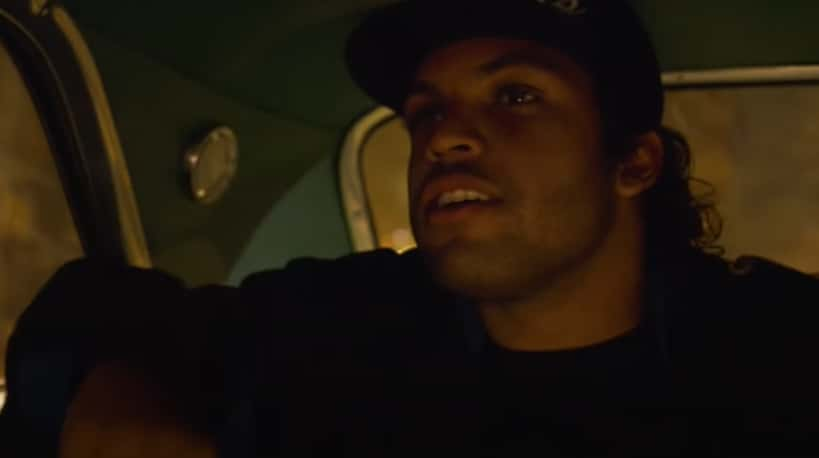 Straight Outta Compton (2015), Universal Pictures
Straight Outta Compton (2015), Universal Pictures
46. The Film Set Was a Violent Disaster
Ice Cube acted as a producer on Straight Outta Compton. Making the more violent parts of the film brought him back to a milieu he hadn’t seen for decades—and before he knew it, he was at the center of a truly disturbing incident. During the filming, law enforcement detained notorious music mogul Suge Knight for a hit-and-run incident. Soon after, the chilling details emerged.
47. He Lost a Close Friend in the Process
Some witnesses claim that Knight argued with Ice Cube’s good friend and collaborator Terry Carter on the set of Straight Outta Compton one day in January 2015. Later that day, cameras showed Knight running over Carter and another man. Later, Carter passed from his injuries. While Knight’s lawyer argued that he’d hit the men in self-defence, a judge later sentenced him to 28 years in prison. It was a confounding and horrifying incident—and sadly, for Ice Cube, it wasn’t over yet.
48. The Family Blamed Him
Knight had showed up unexpectedly on set, and security promptly ejected him. Carter, who was a longtime friend of Cube’s, later met Knight in the parking lot of a local burger restaurant. He hoped to mediate and avoid future confrontation on set. Soon after, Knight ran over Carter. His family filed a wrongful death suit against Ice Cube and Dr. Dre, due to Carter’s connection to the film.
Eventually, a judge dismissed the case, but there was more in store for Ice Cube.
49. He Was Sued…Yet Again
Of course, Ice Cube featured his old foe Jerry Heller in the film—after all, Cube had left N.W.A. because of Heller’s interference. Heller brought 12 claims against Cube, director F. Gary Gray, Dre, and others involved in the production of the film. He even sued the estate of Eazy-E. Heller claimed that the film depicted him in a defamatory way, yet he also claimed that the writers had stolen some parts of the film from his own autobiography. Which one is it, Jerry?
Ultimately, the court dropped the suit after Heller passed on in 2016.
50. He Had a Bizarre Reality Show
While Ice Cube’s film career has seen both its fair share of critical hits and total flops (hello, Anaconda), nothing quite compares to the utterly bizarre premise of his 2005 reality show Black. White. In the show, a black family and a white family trade places to see how the other lives. Except, the white family isn’t actually a family—they’re actors. Additionally, both “families” use makeup in order to portray the other’s race. Yeah, I’m as astounded as you are.
Unsurprisingly, critics said that the show reinforced stereotypes, and it only ended up airing for one season.
Sources: 1, 2, 3, 4, 5, 6, 7, 8, 9, 10, 11, 12, 13, 14, 15, 16, 17, 18, 19, 20, 21, 22, 23, 24, 25, 26, 27, 28


